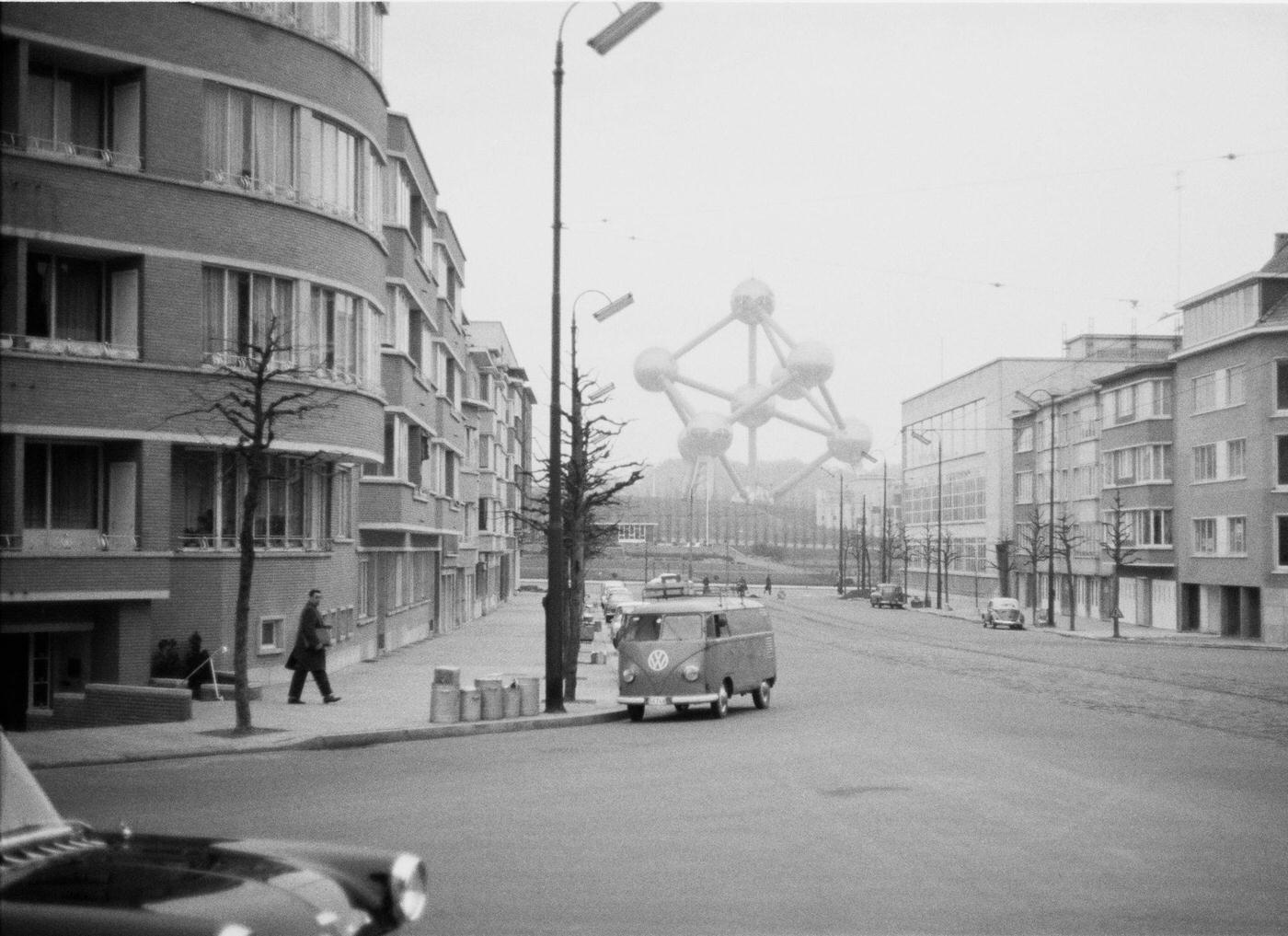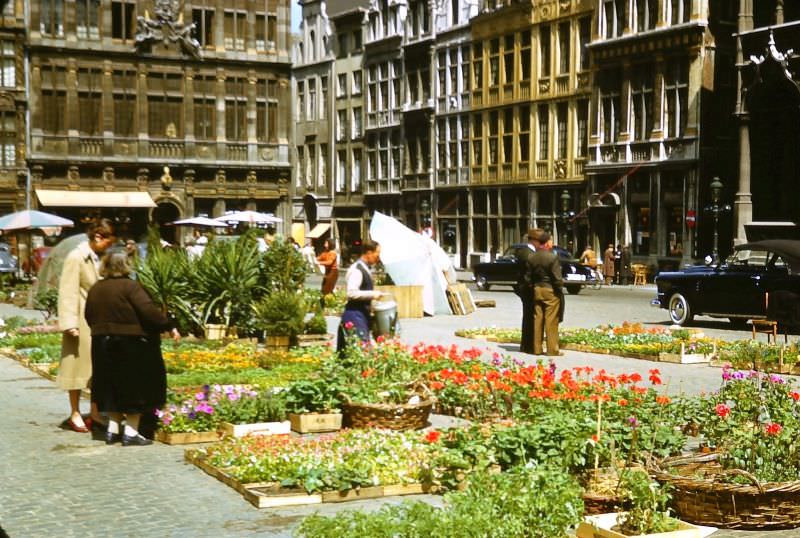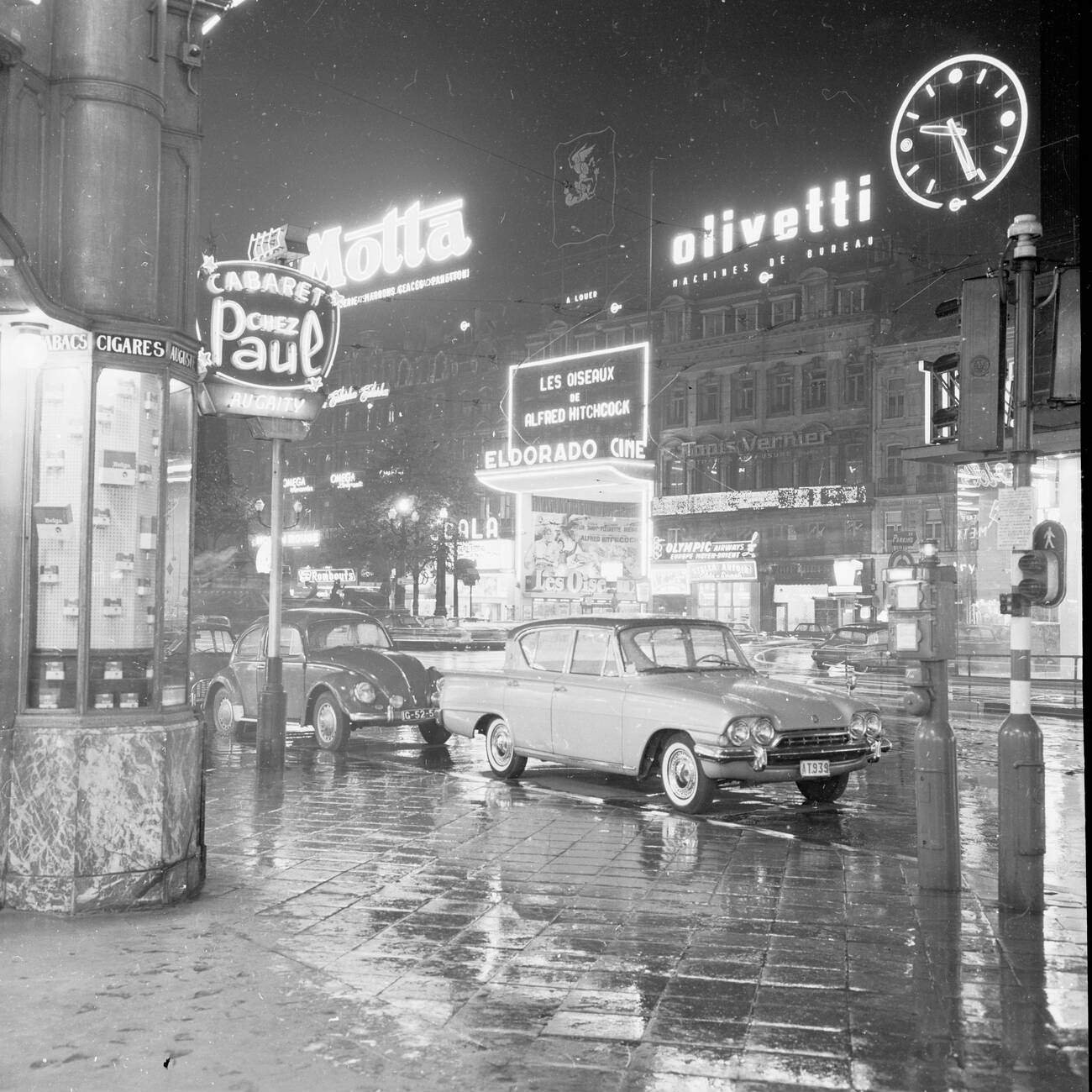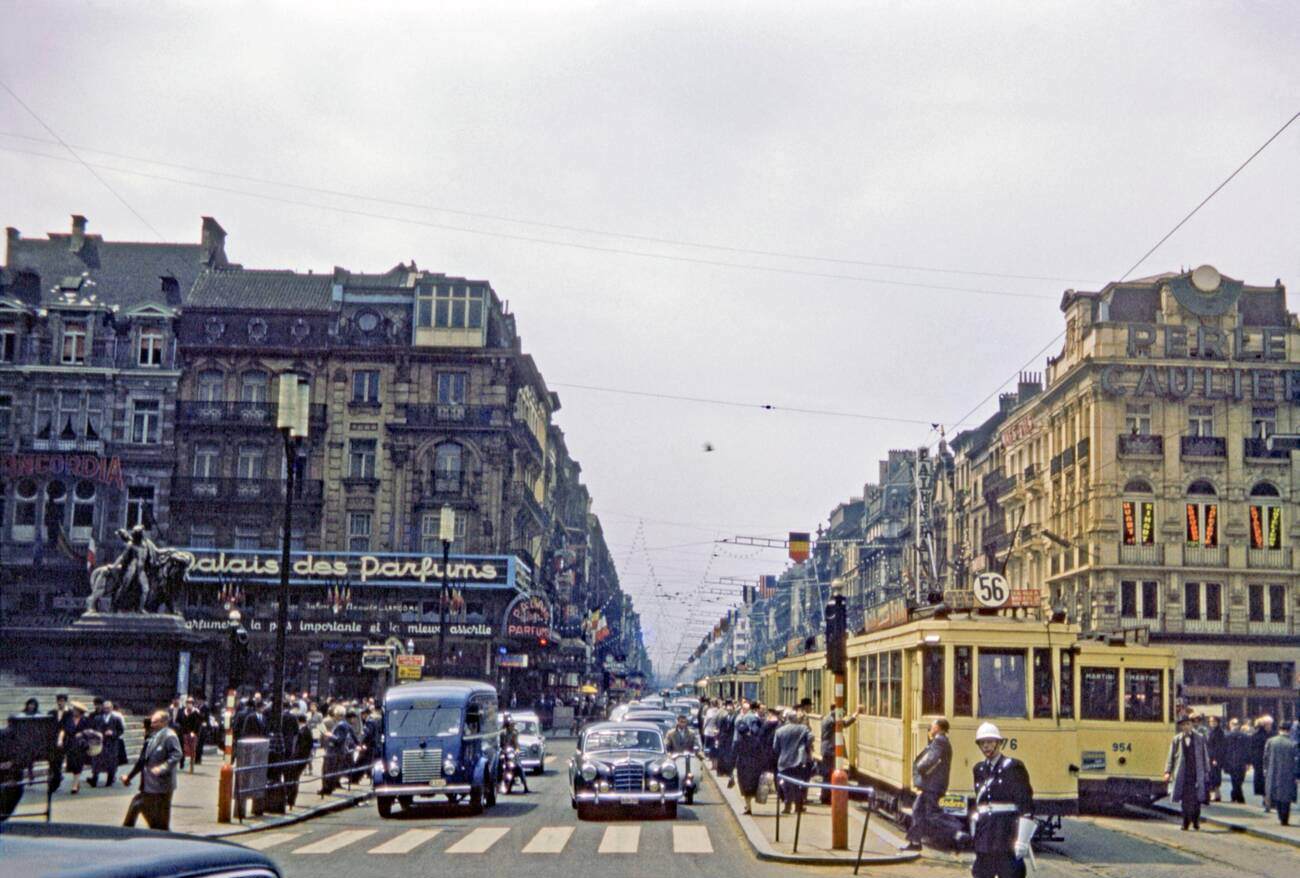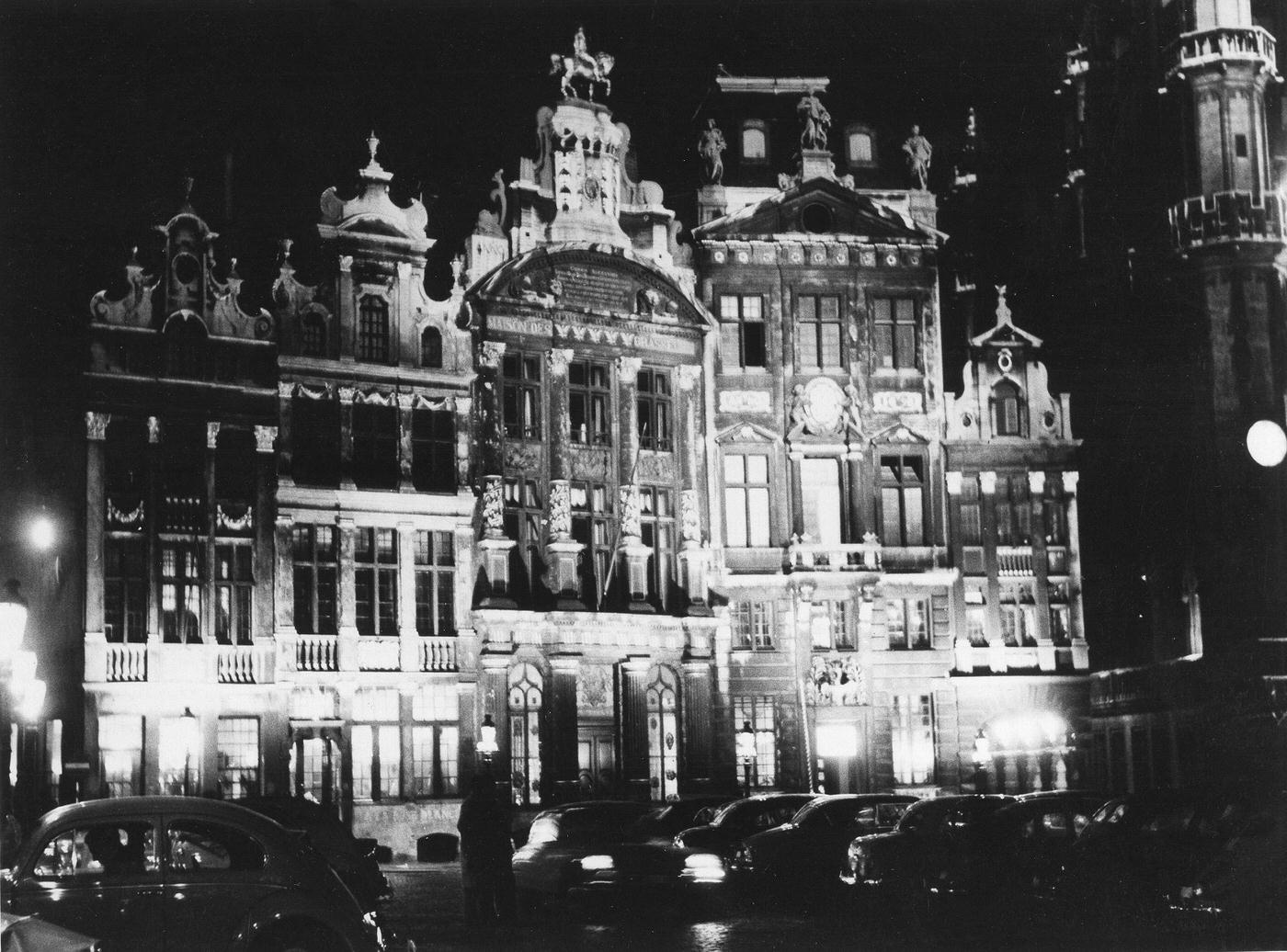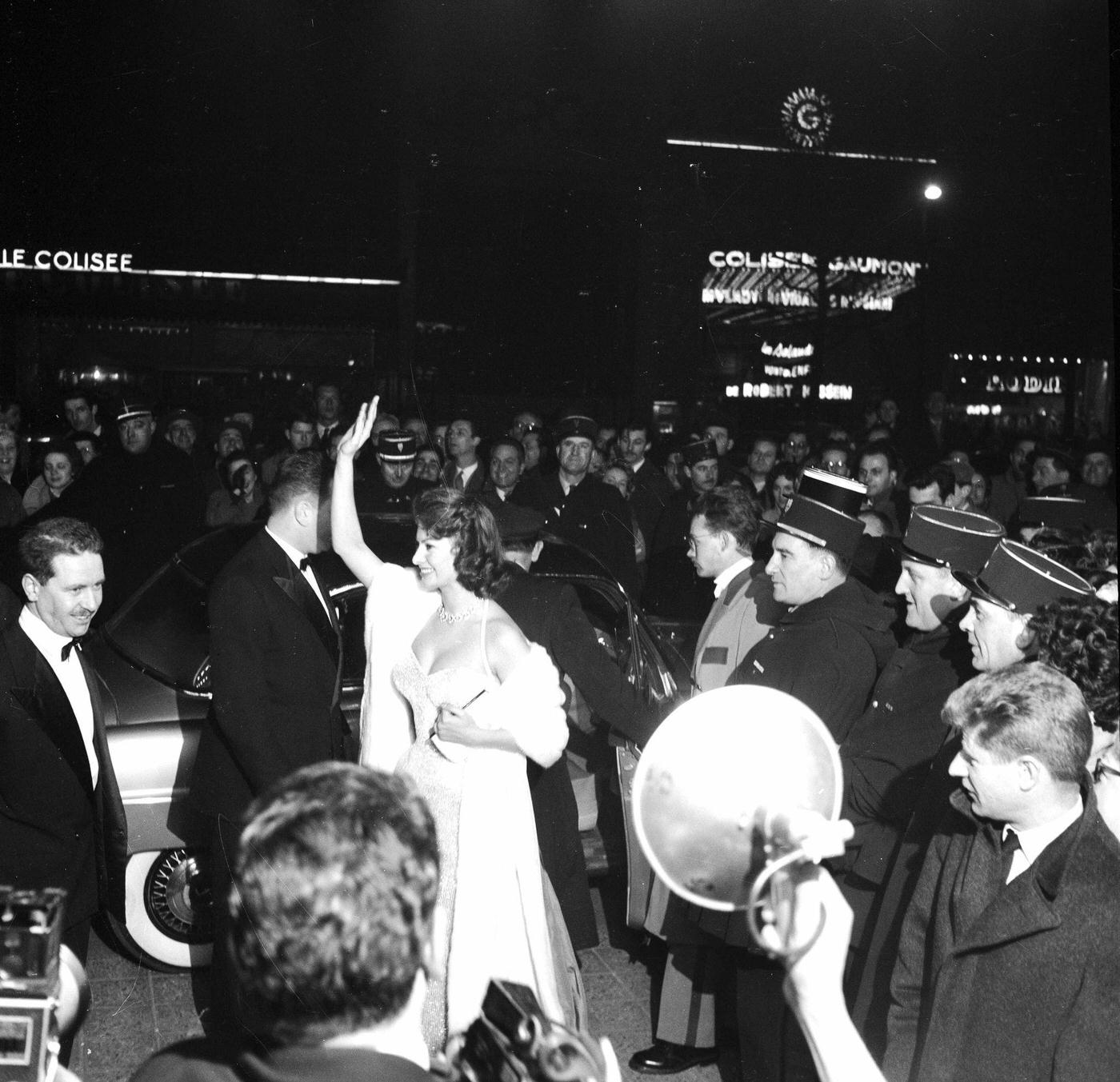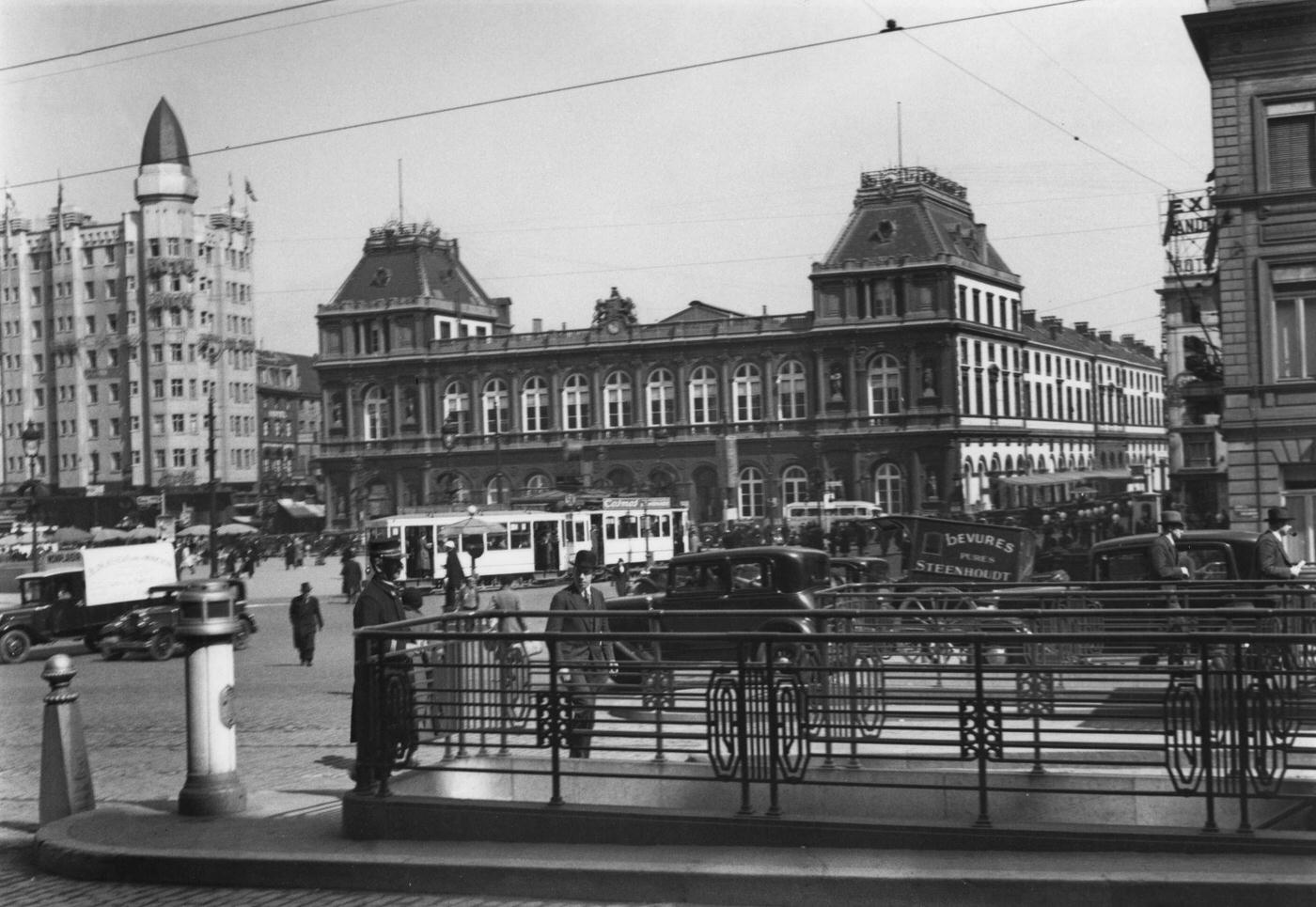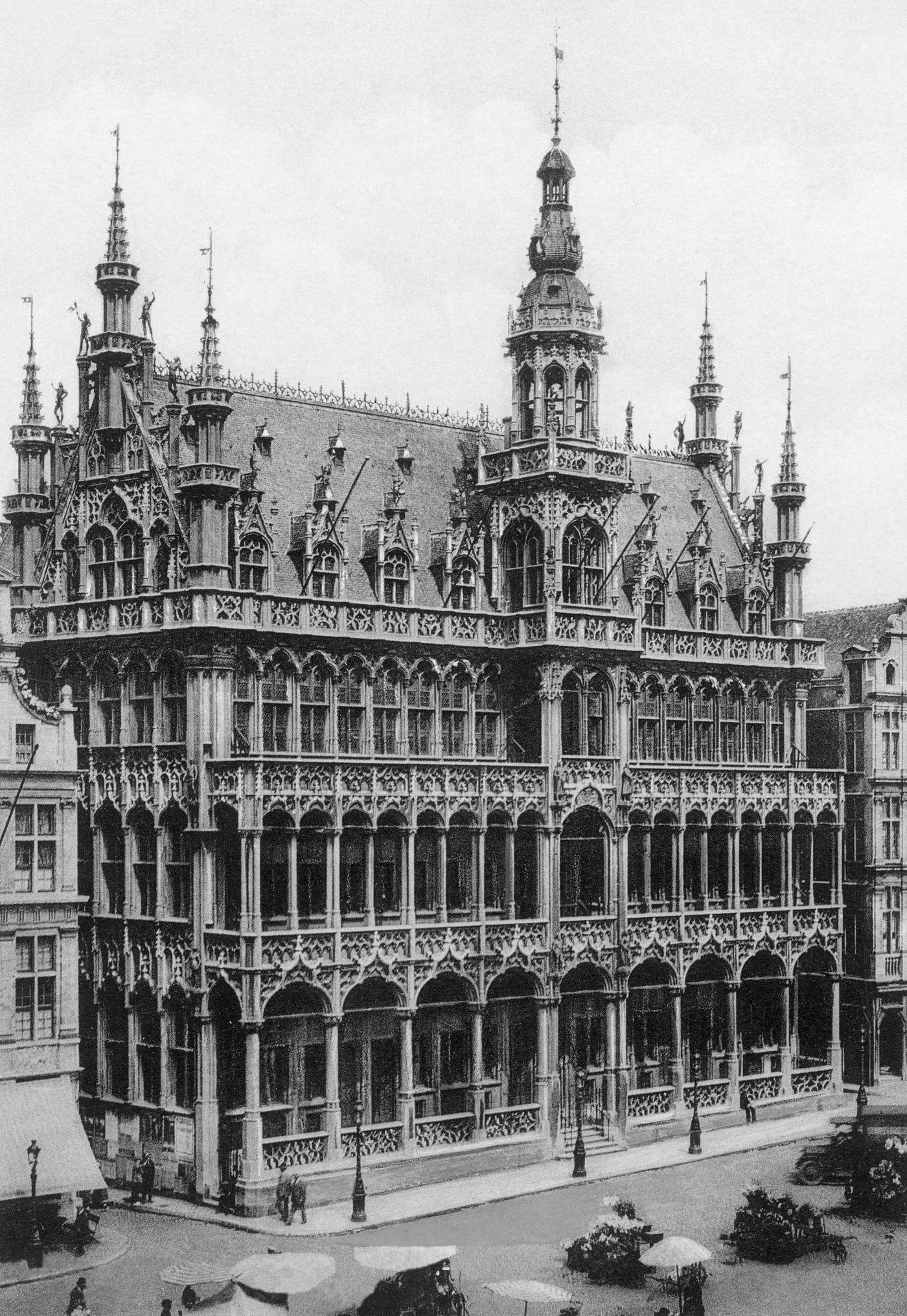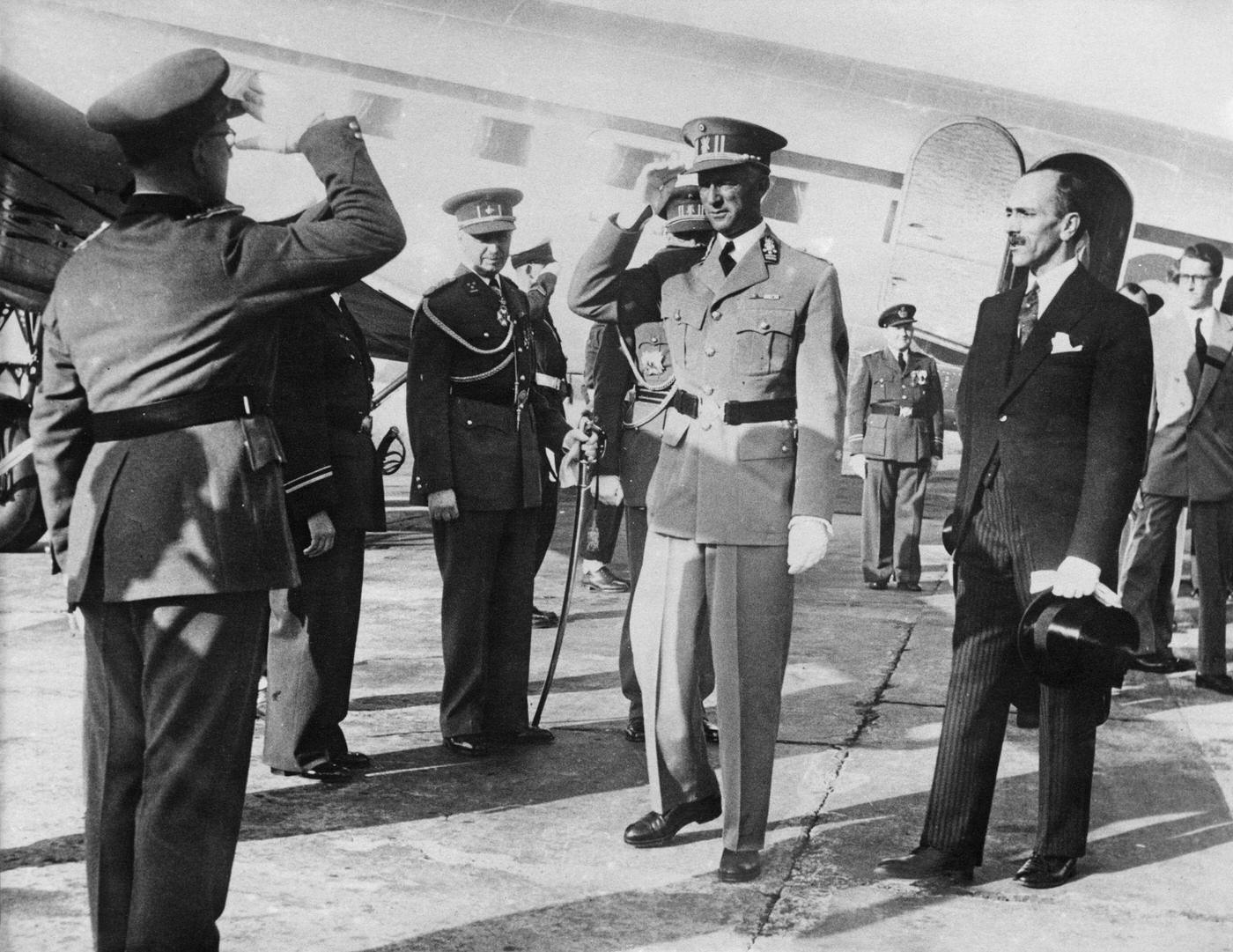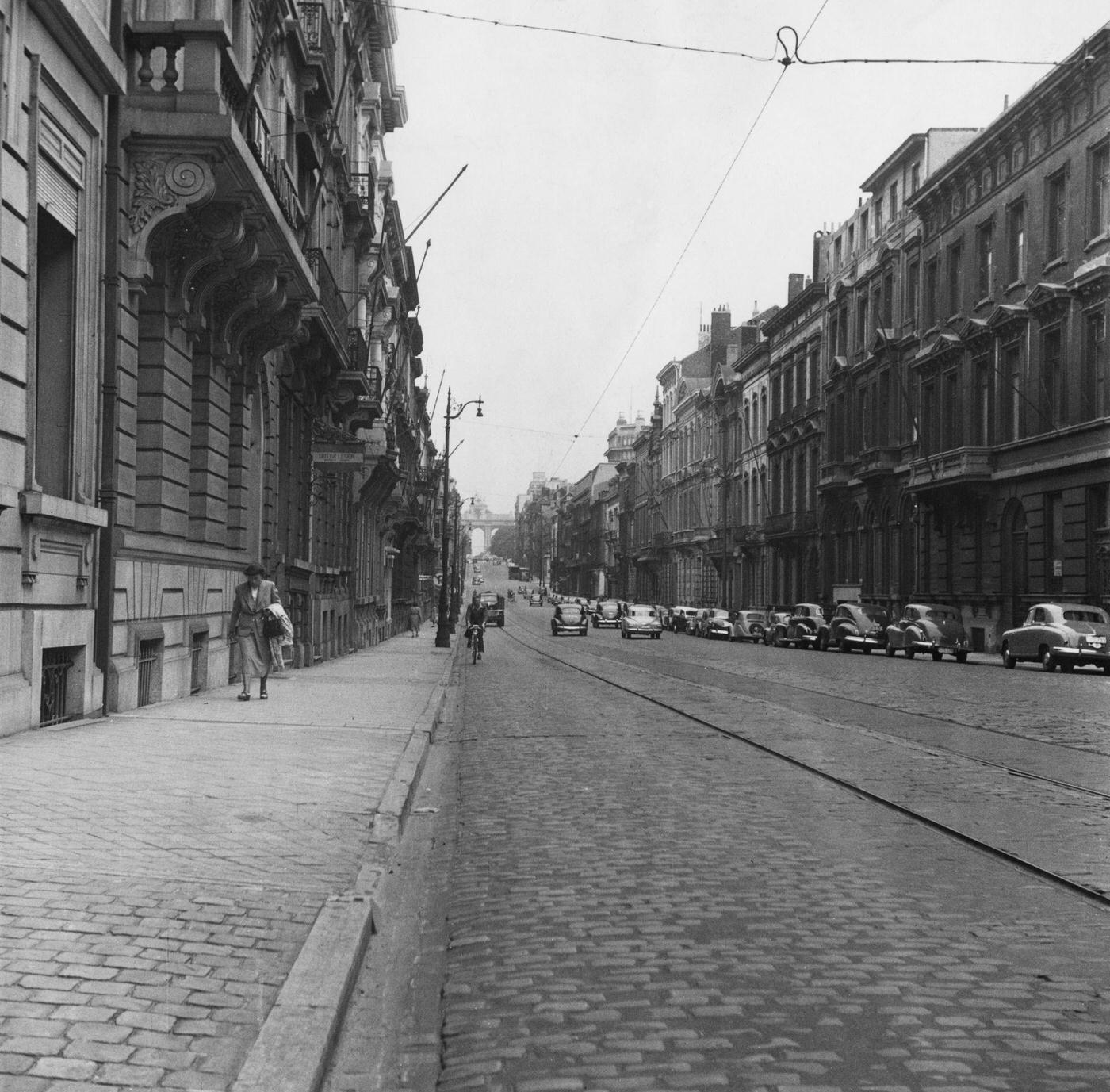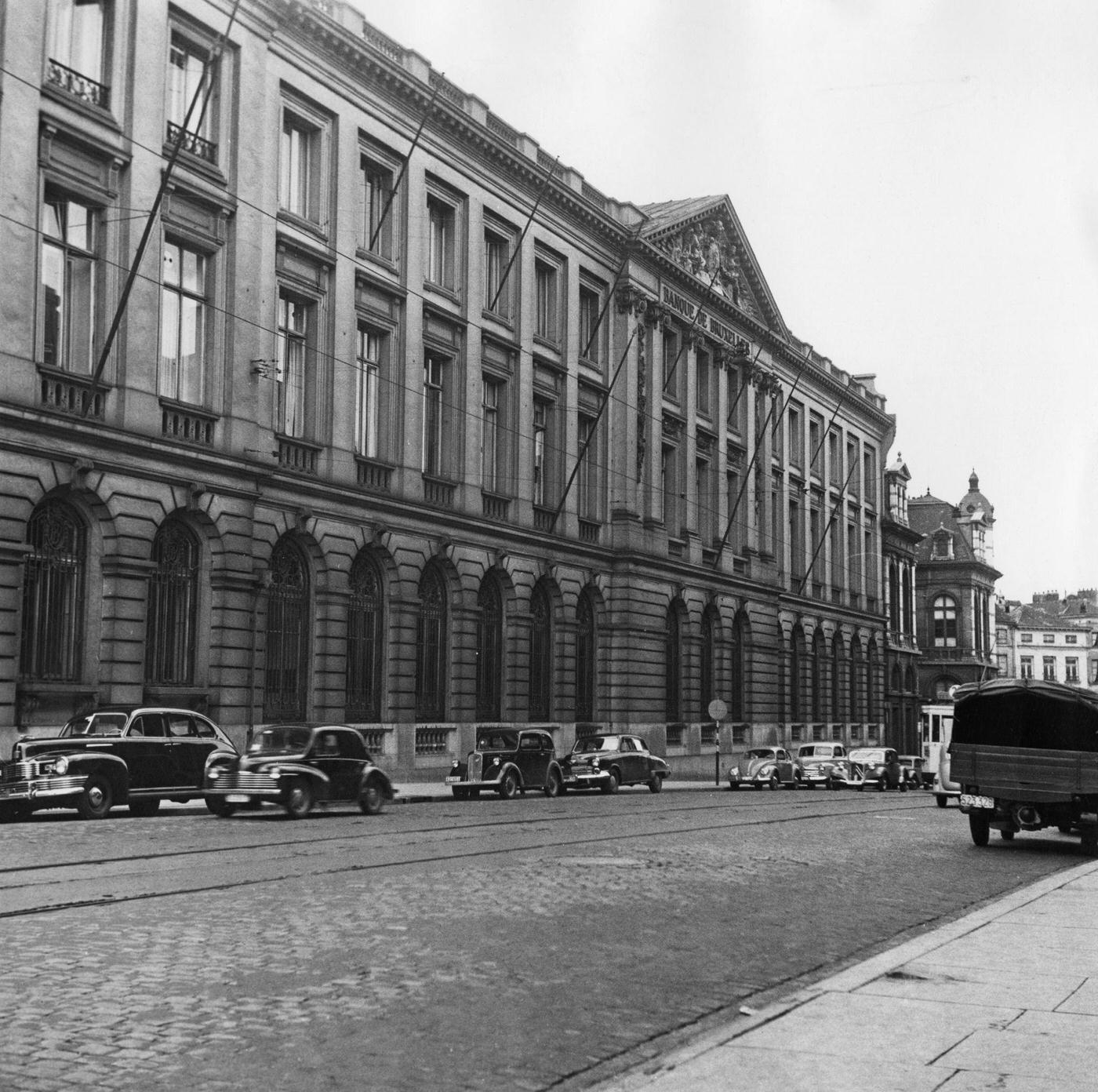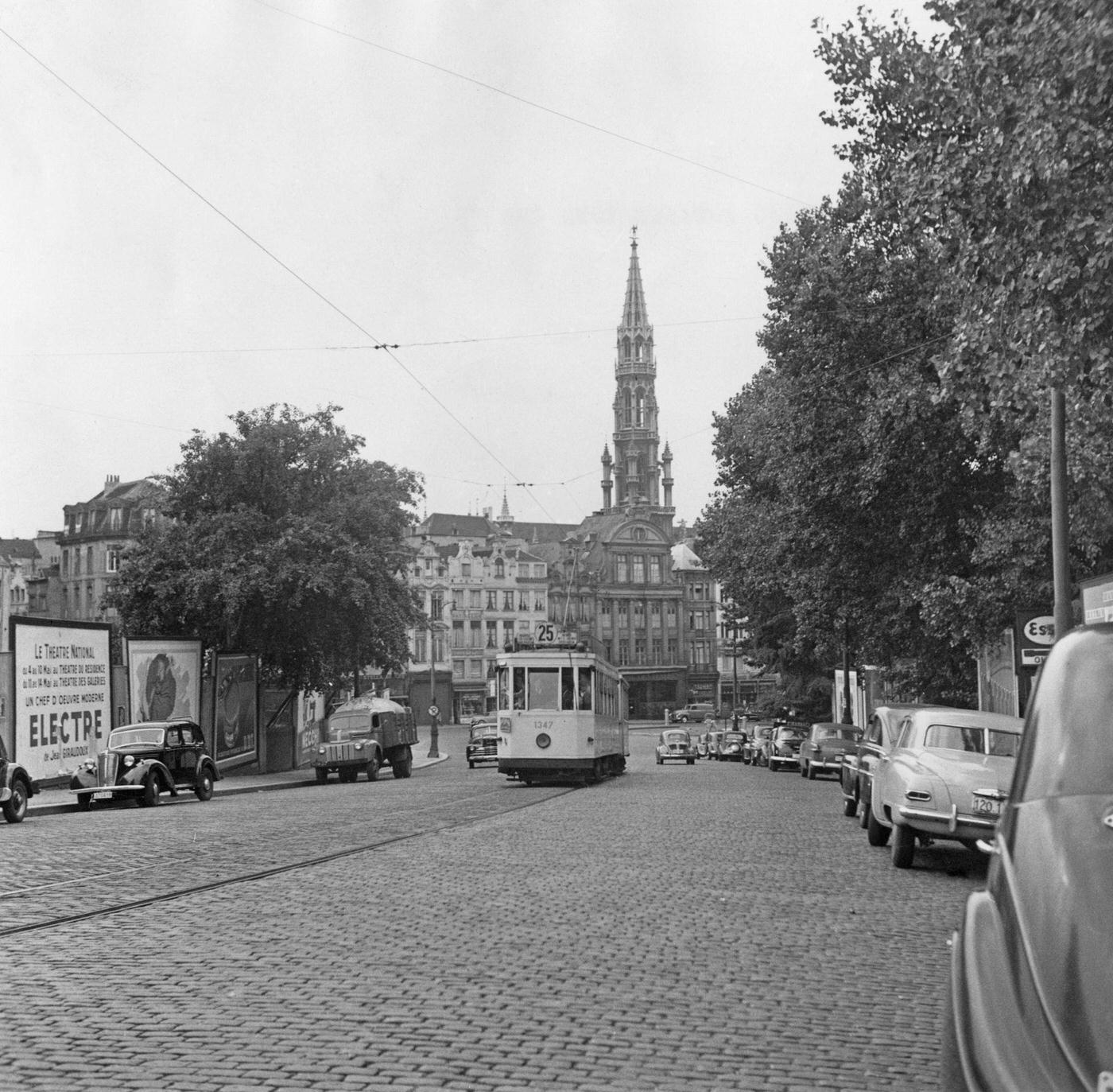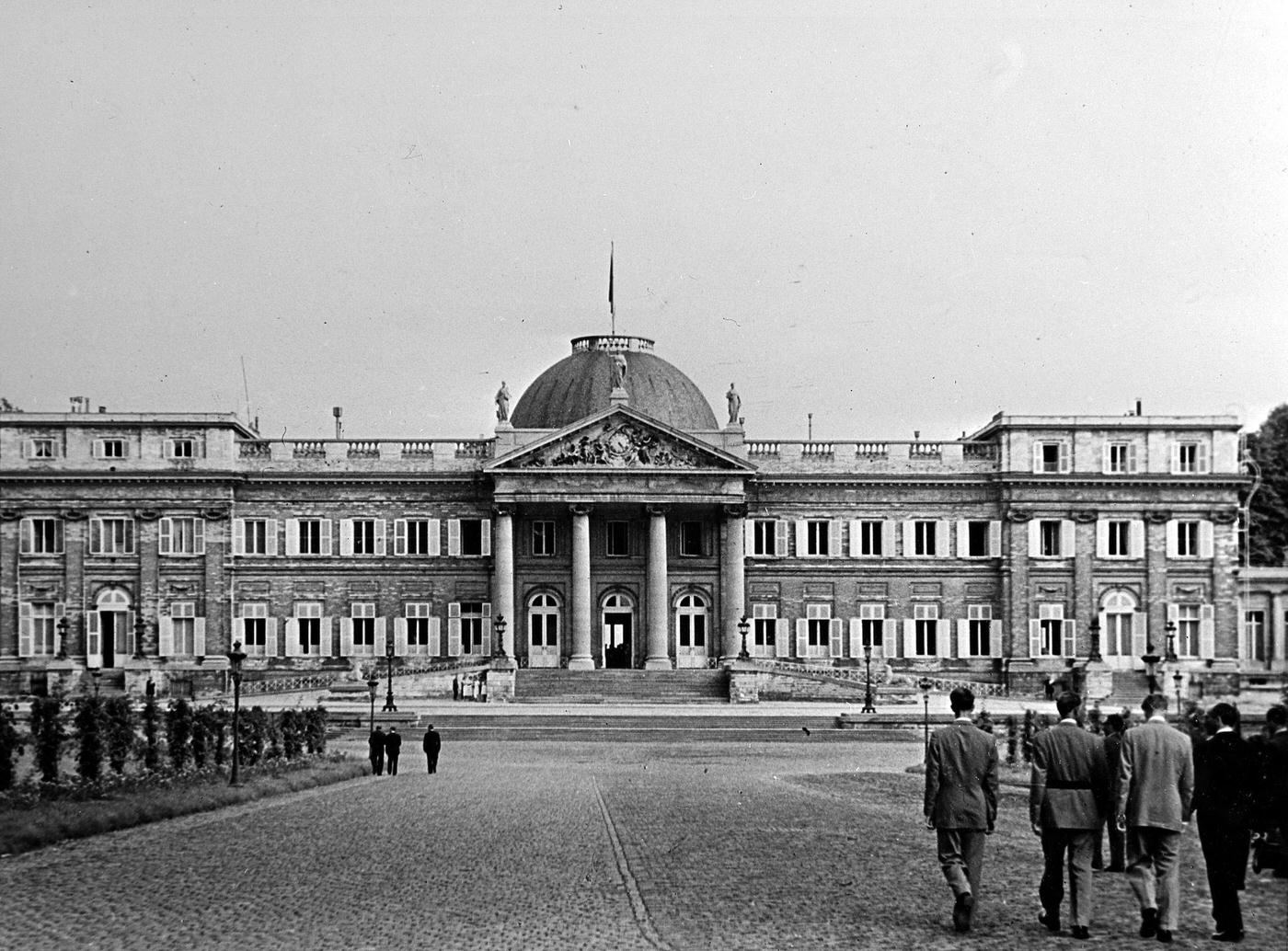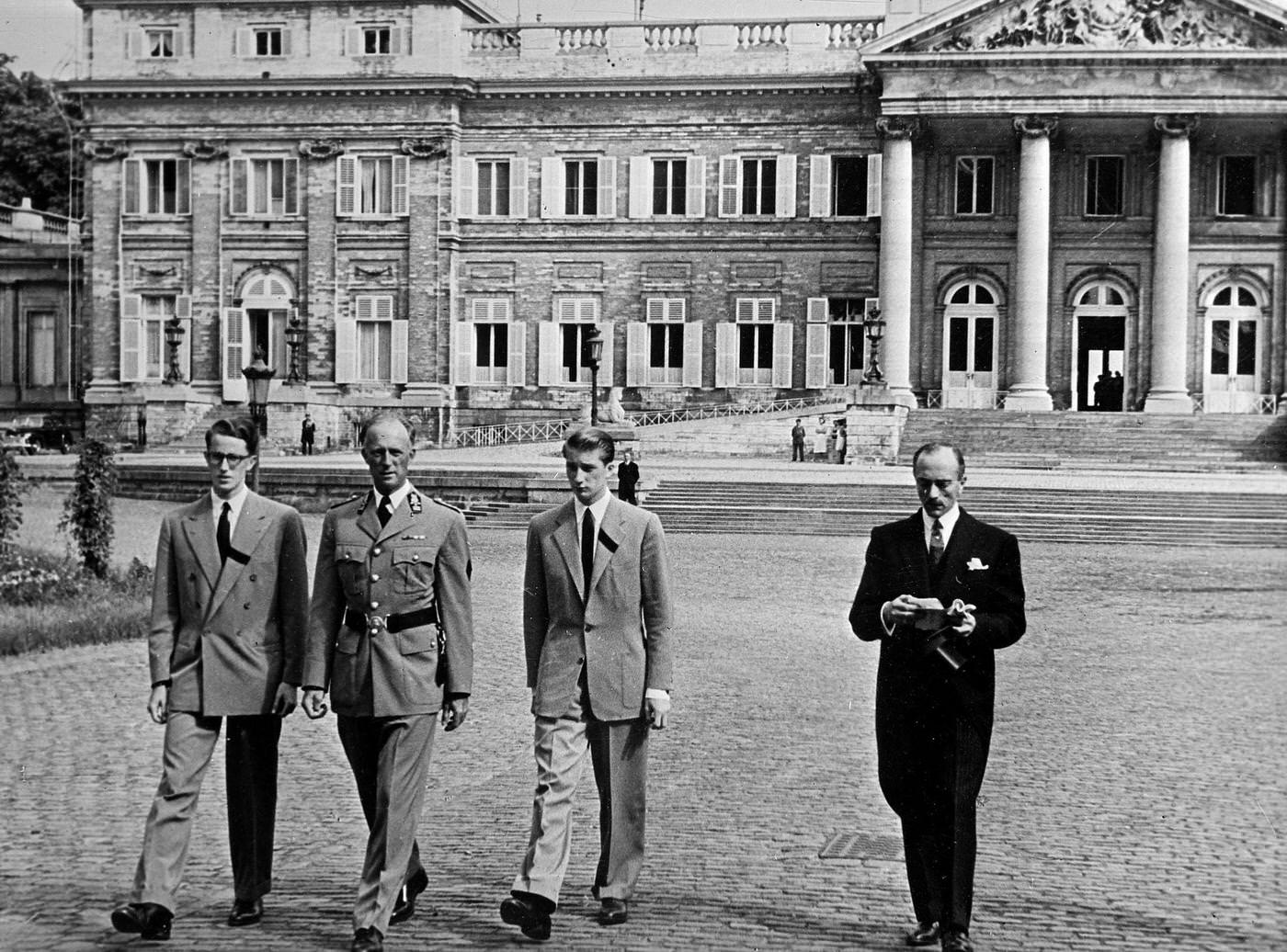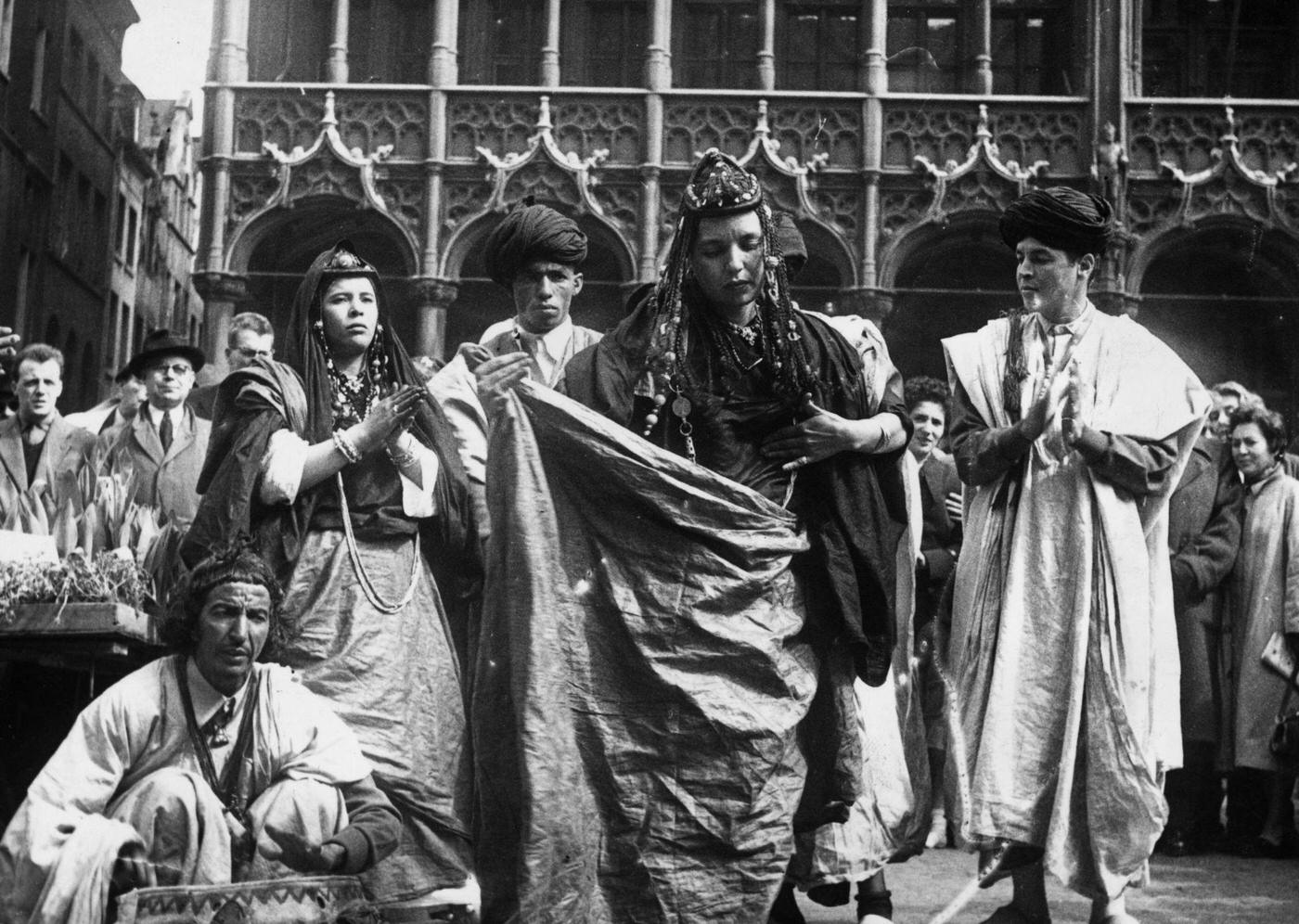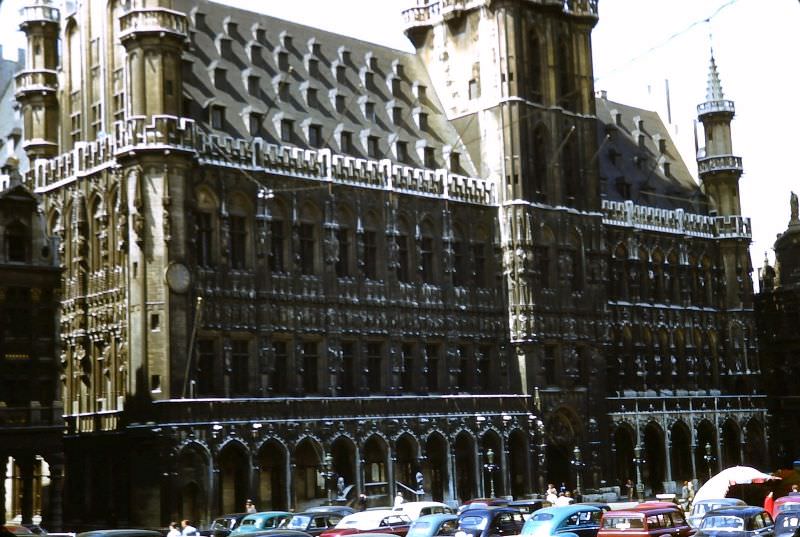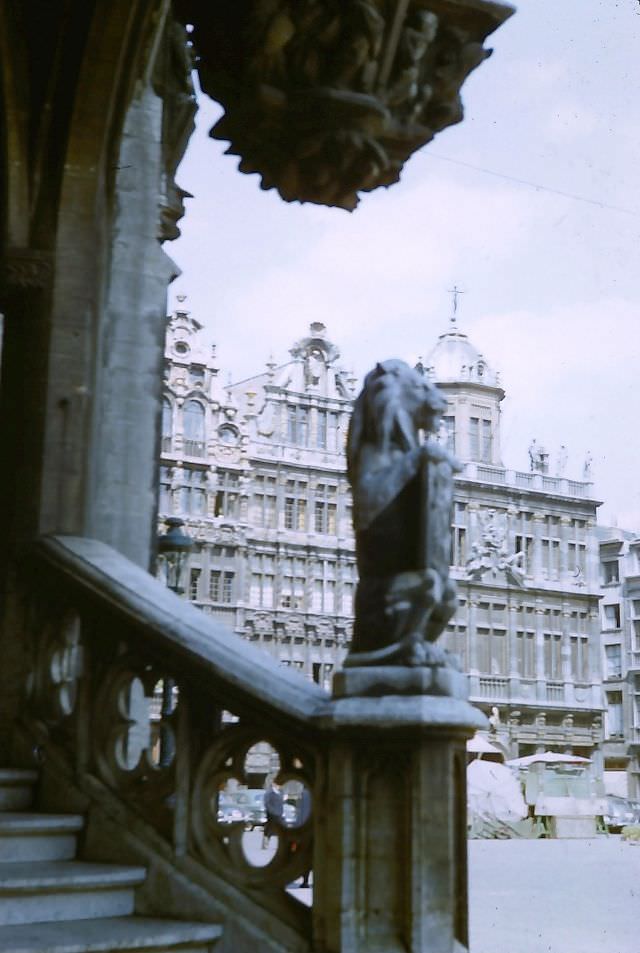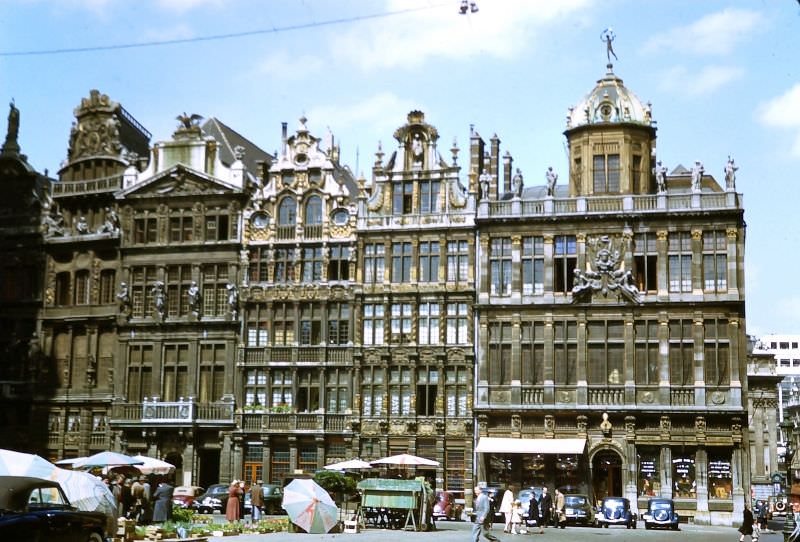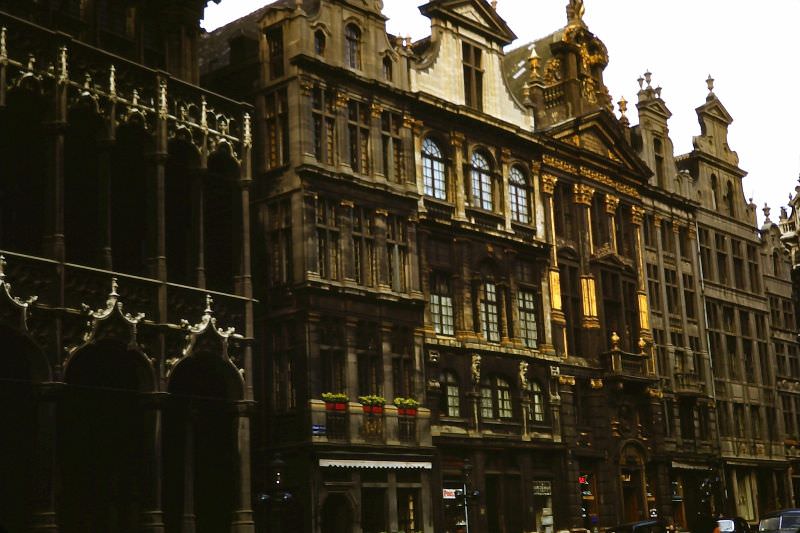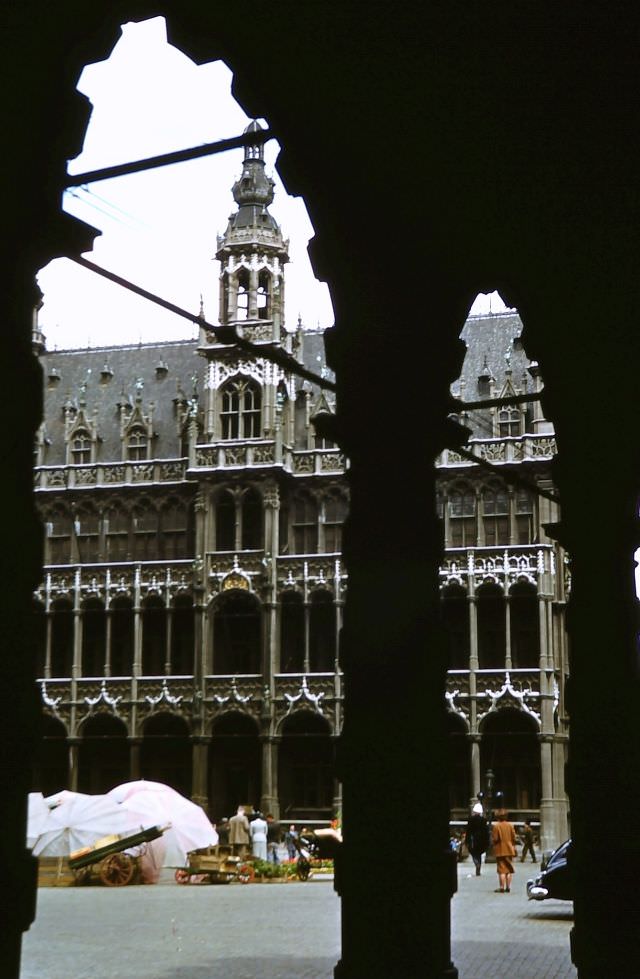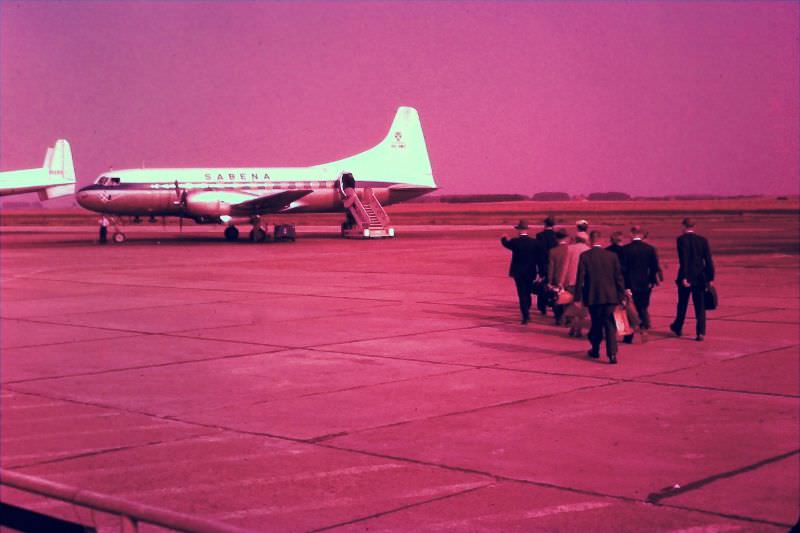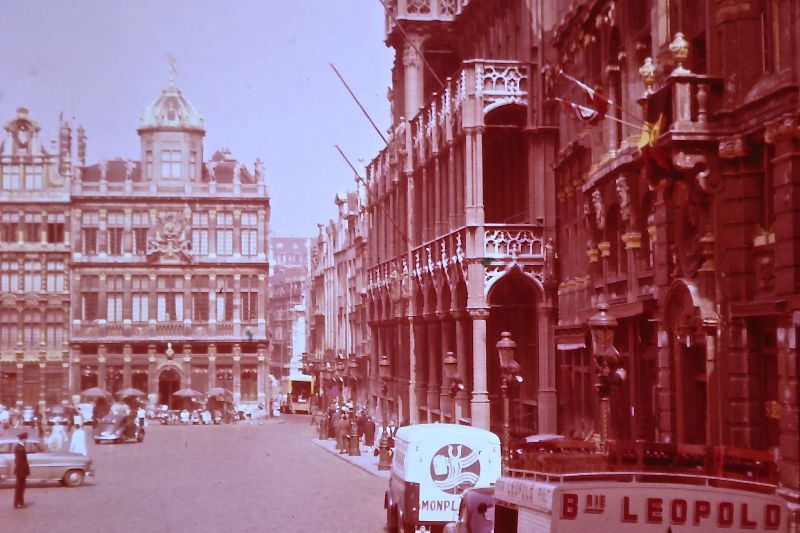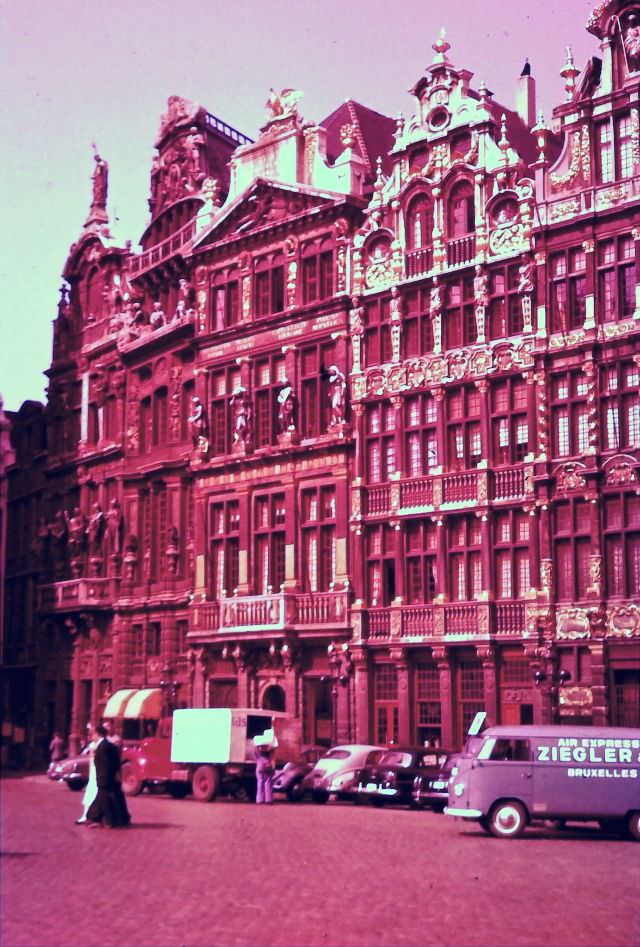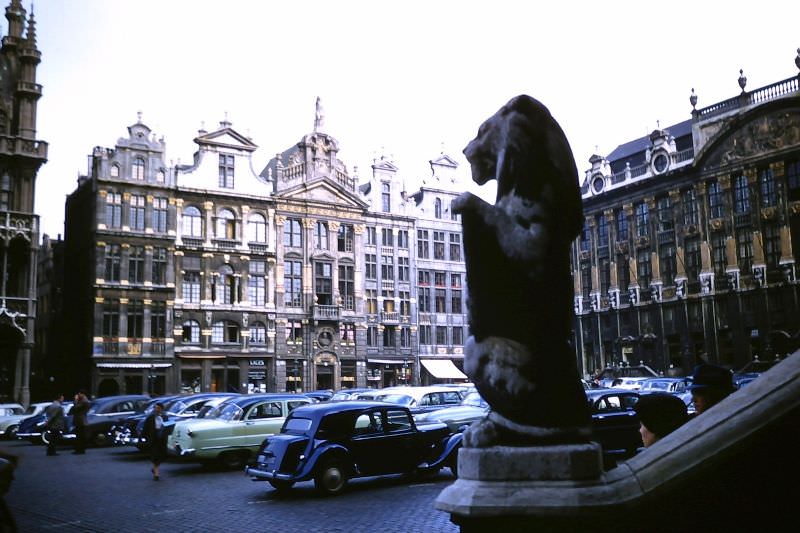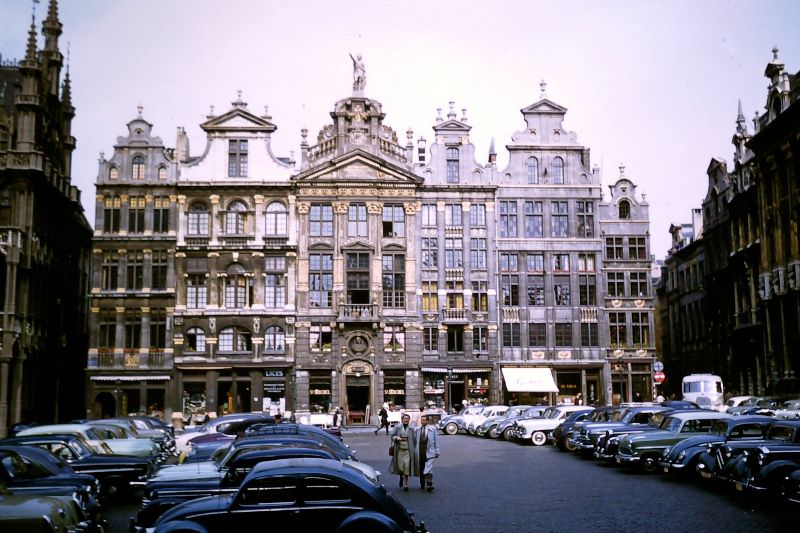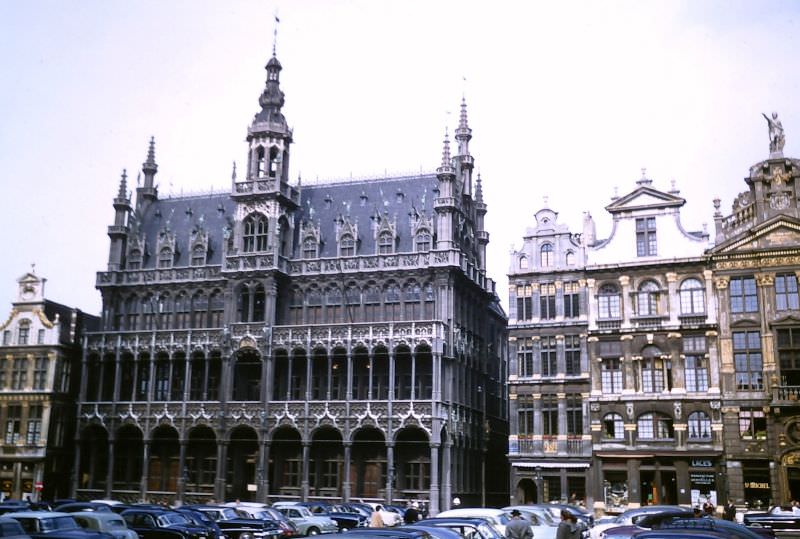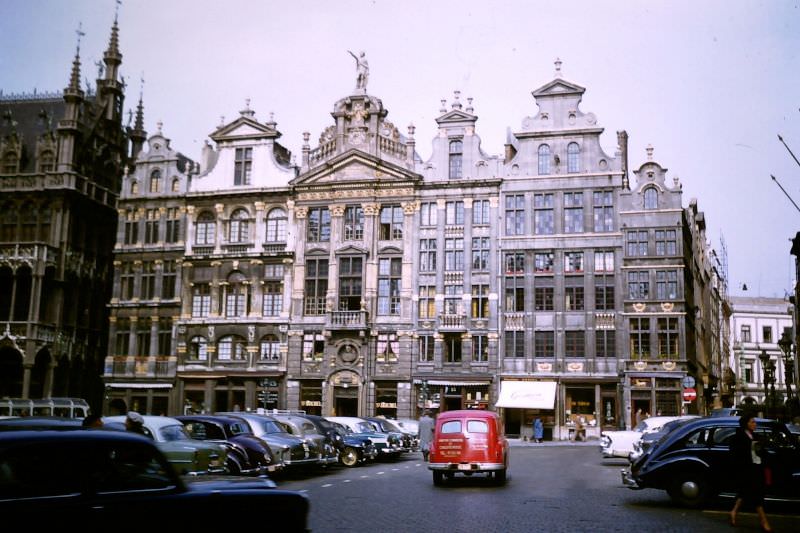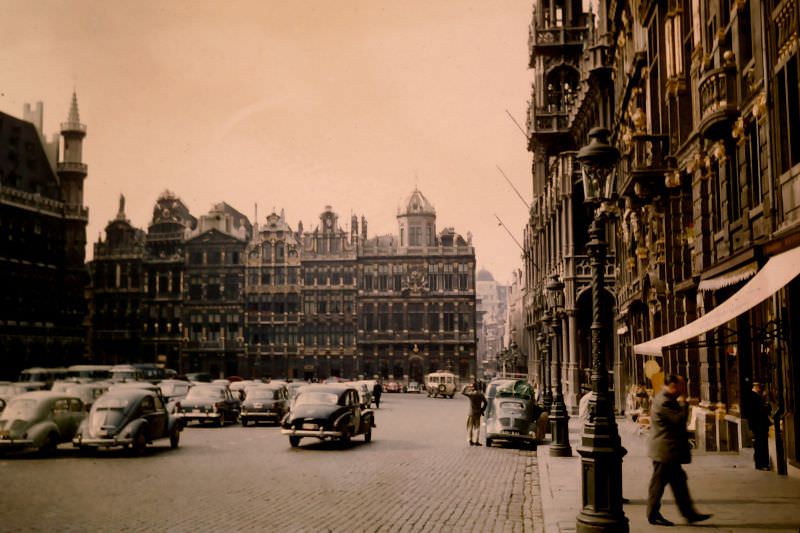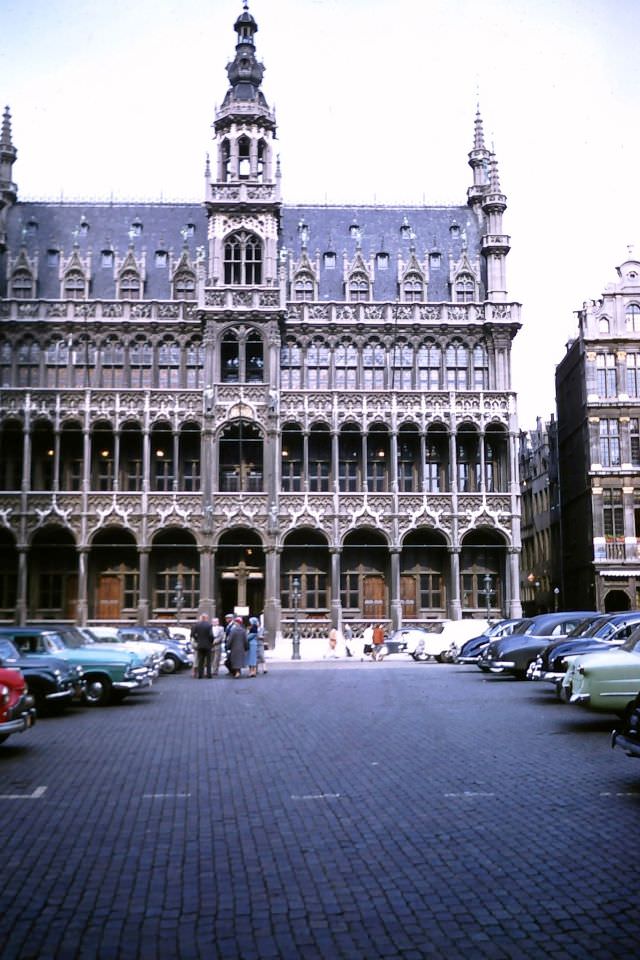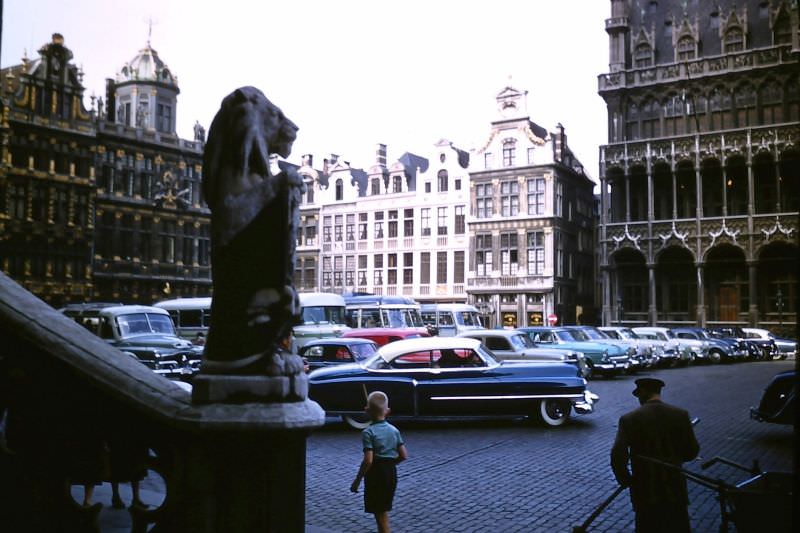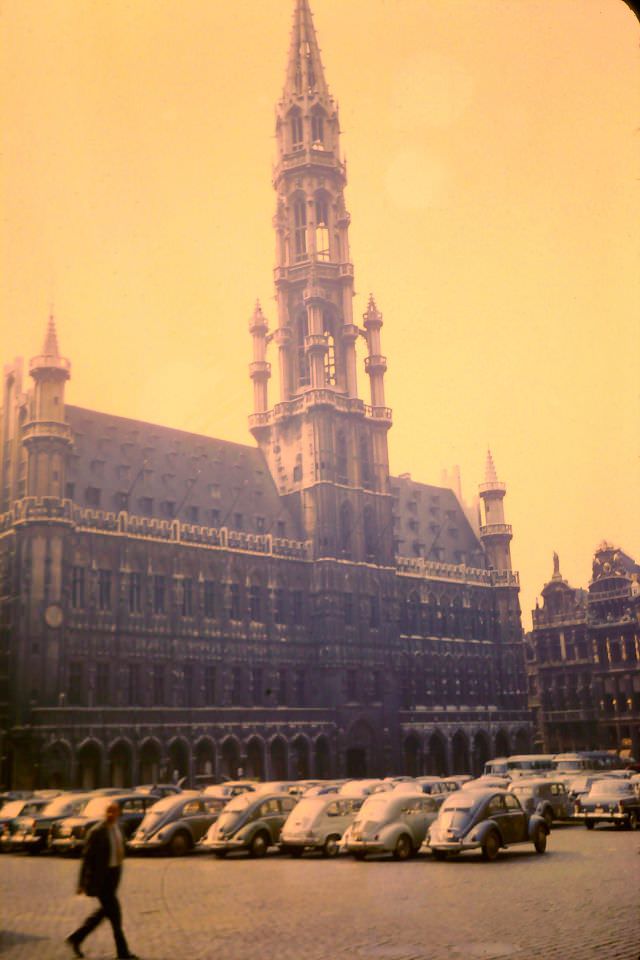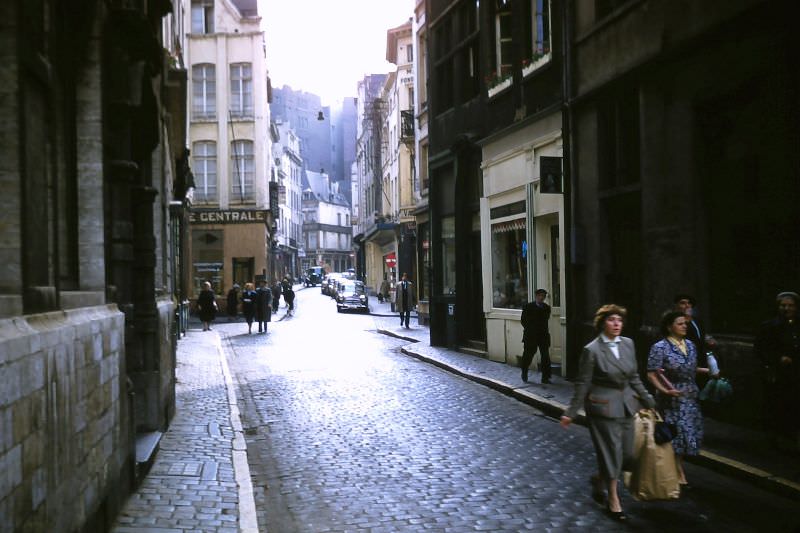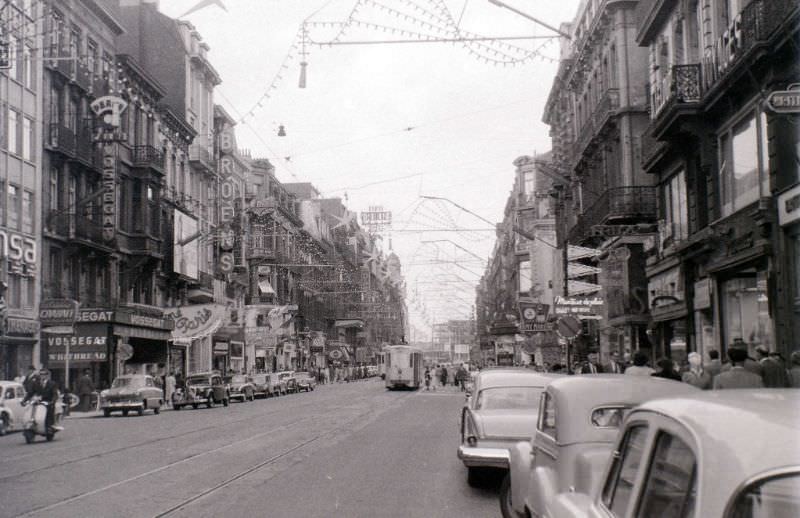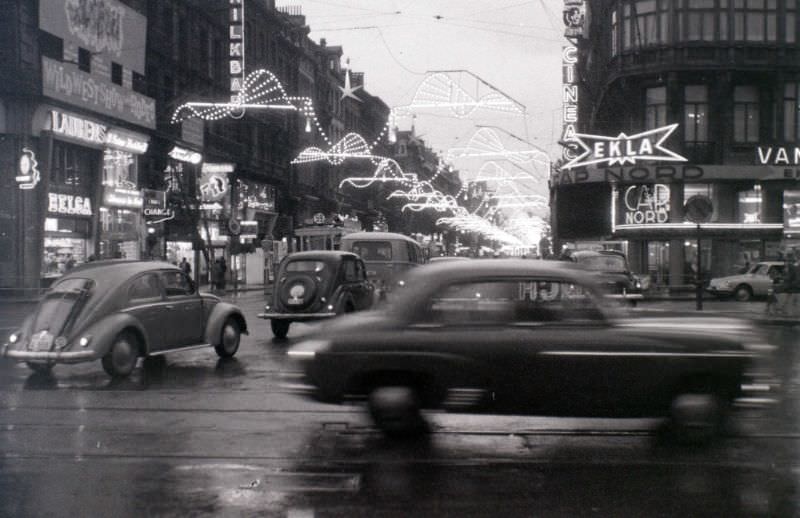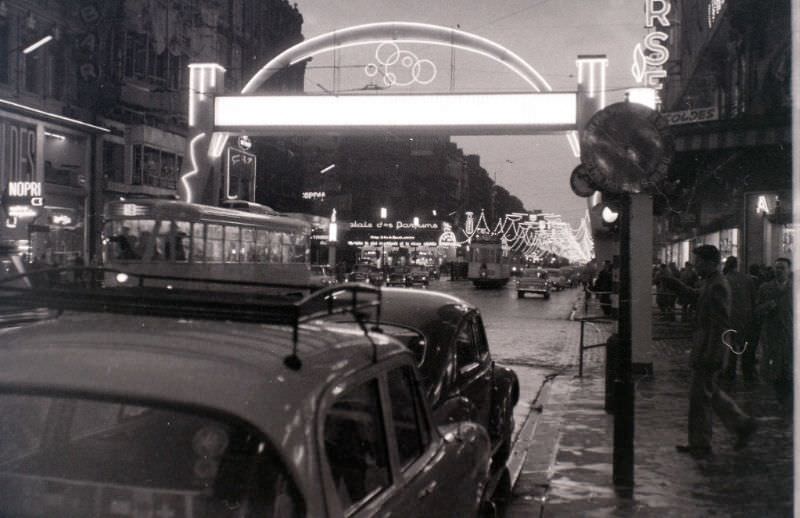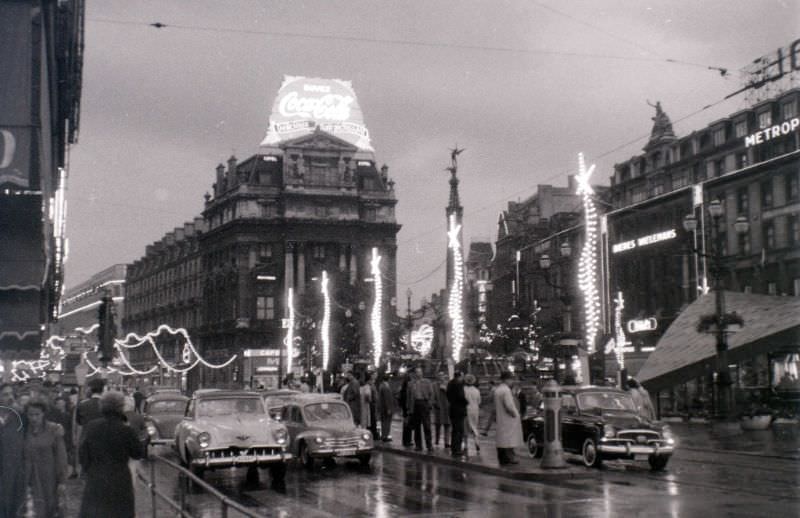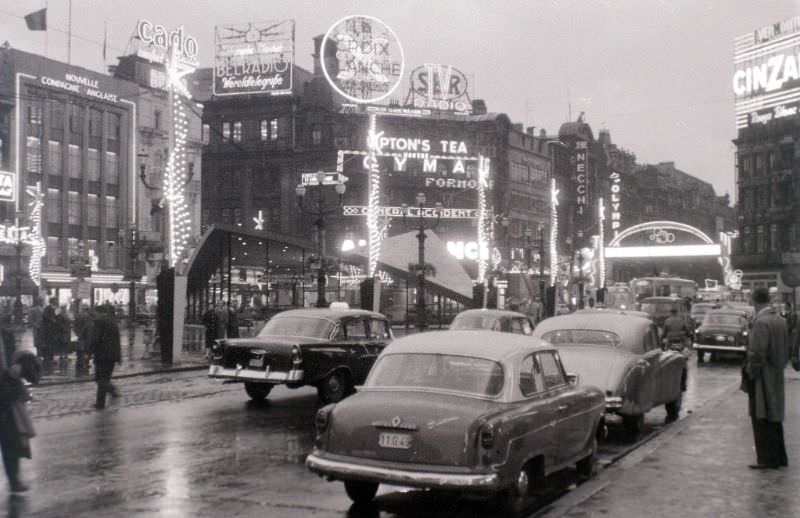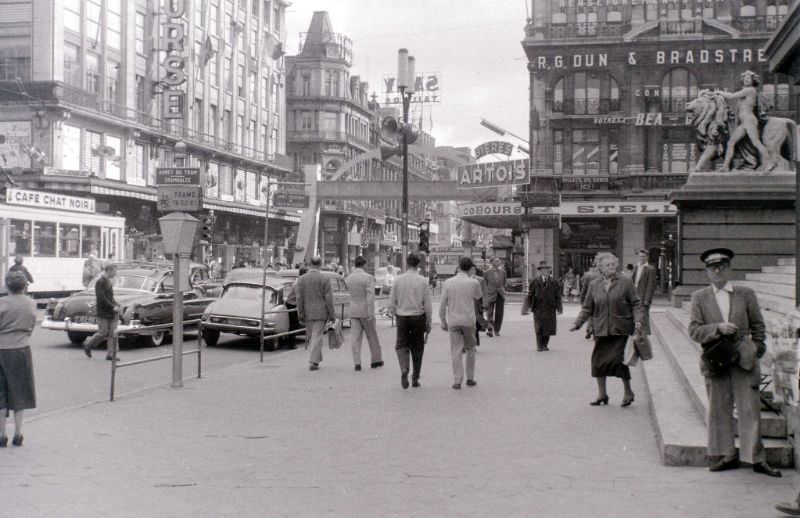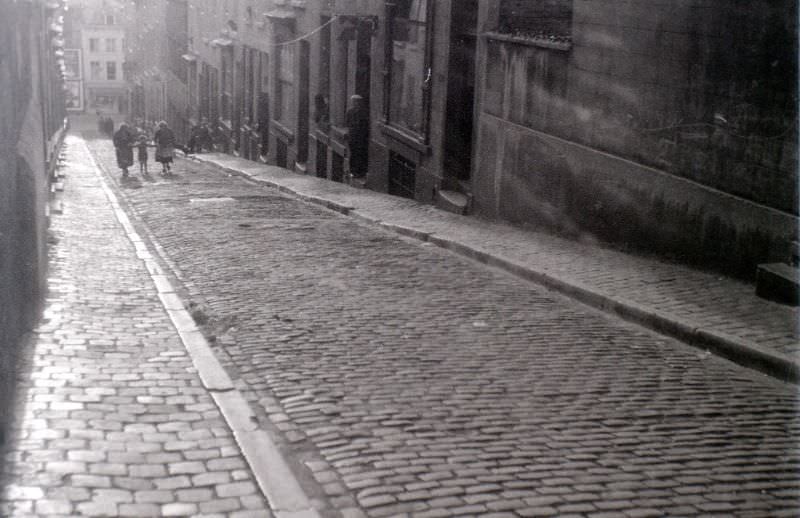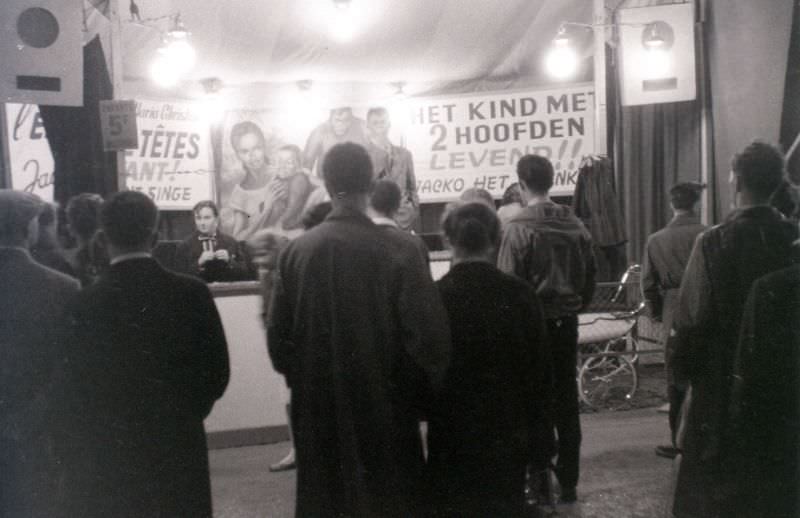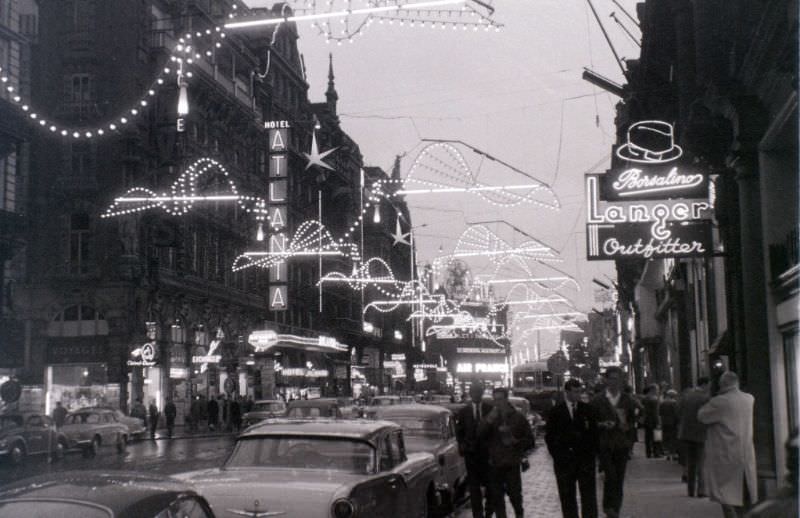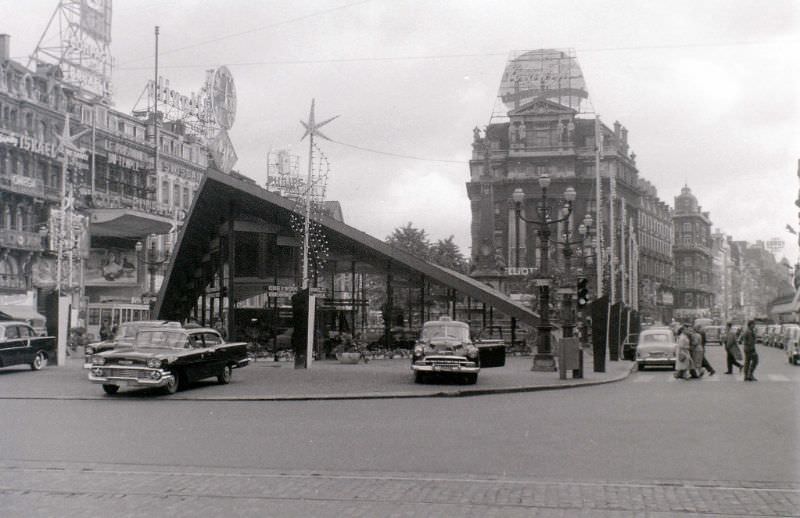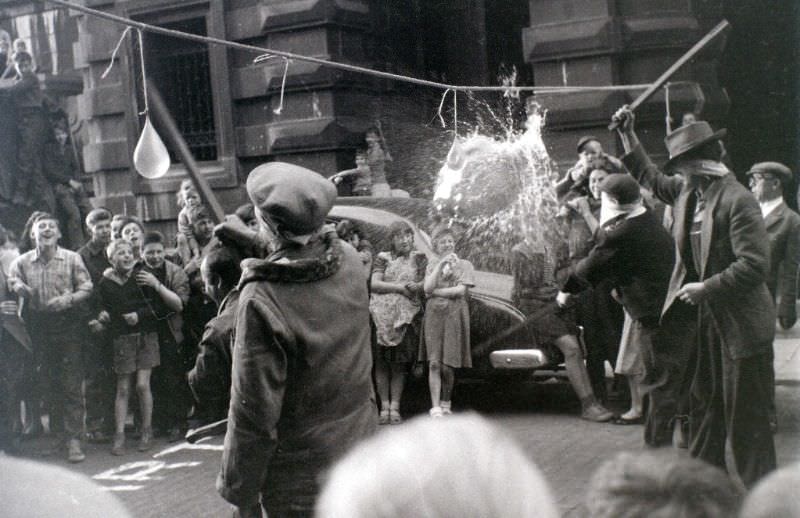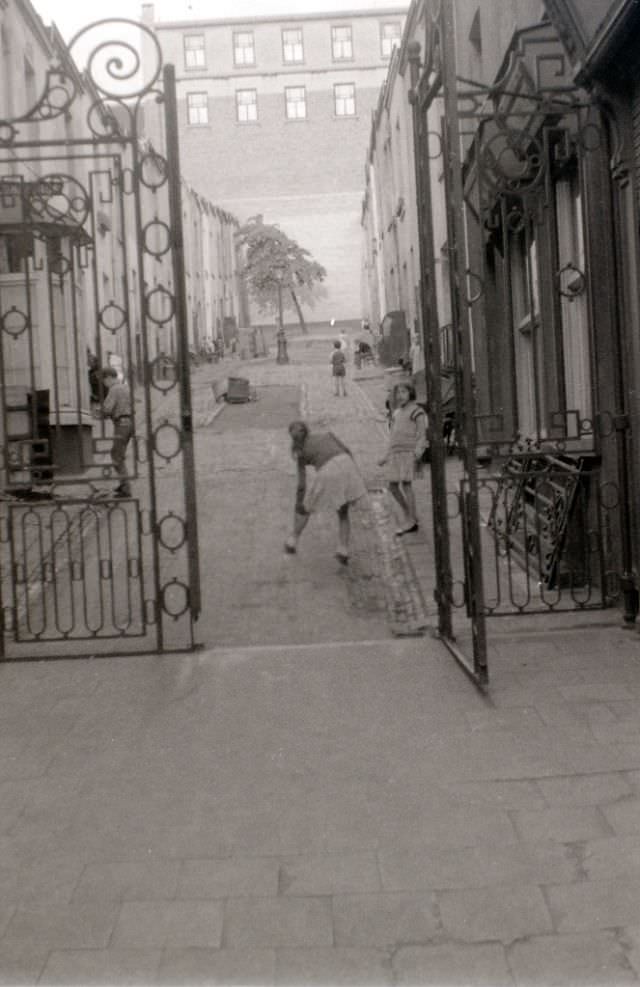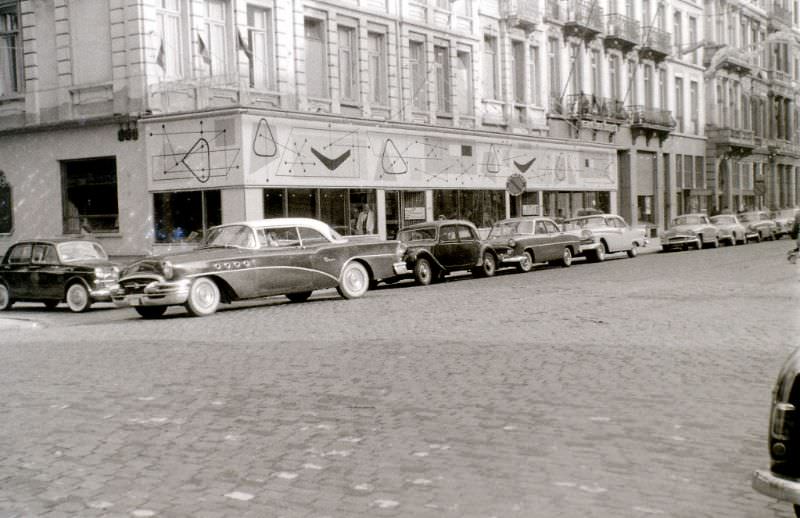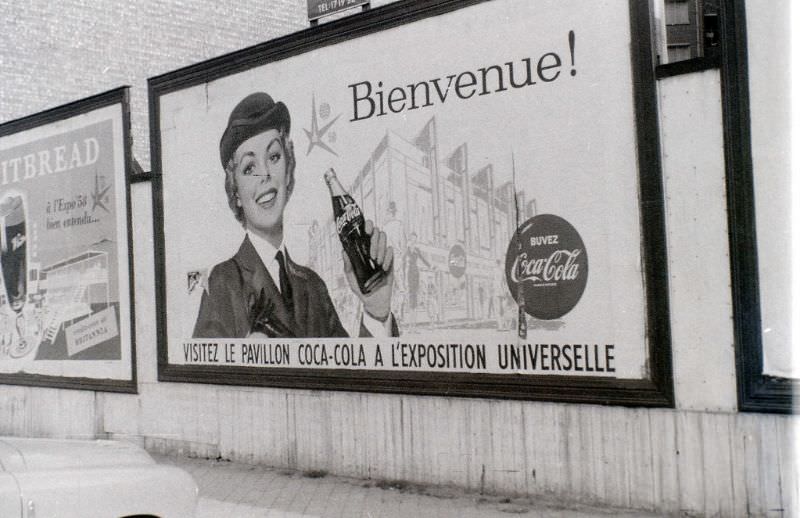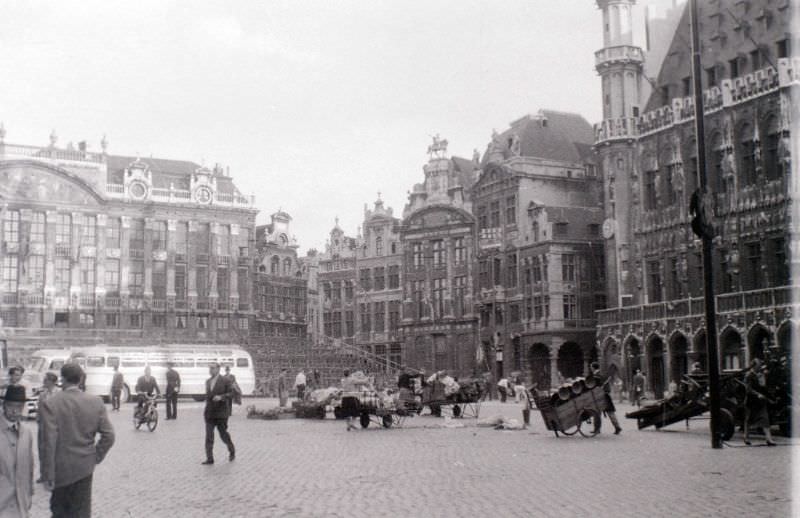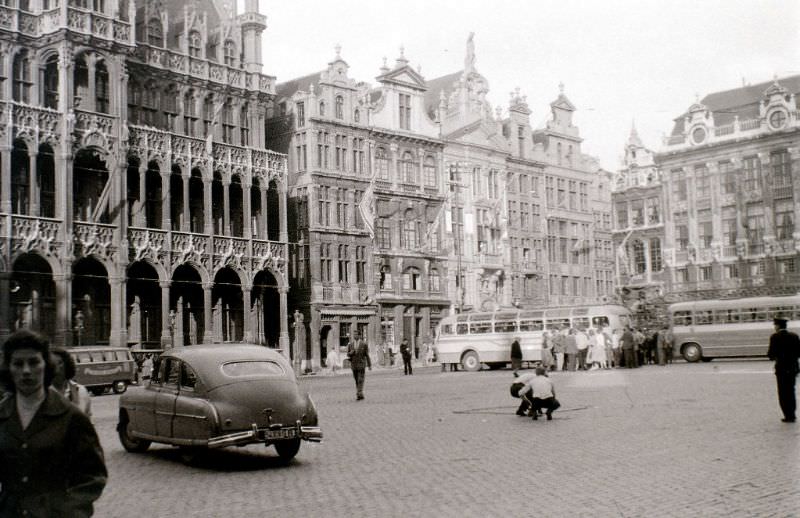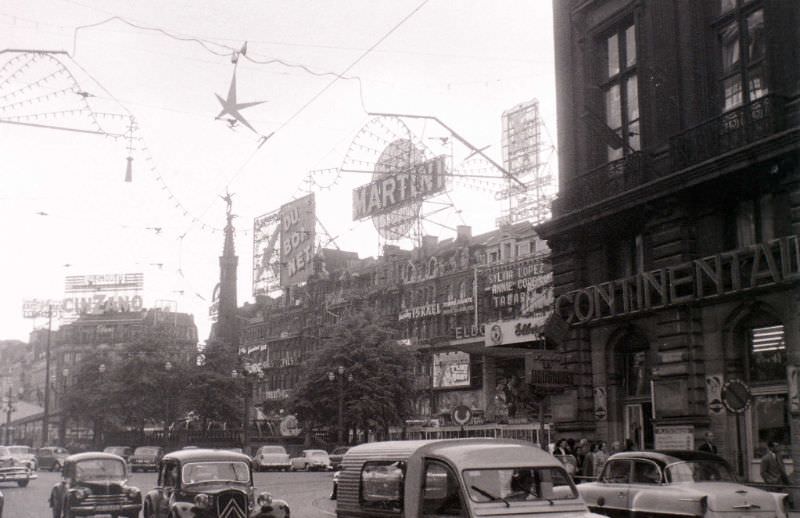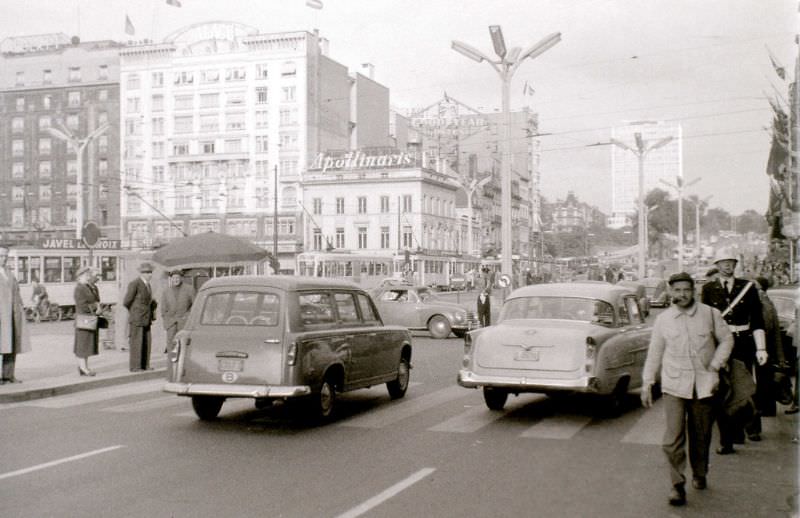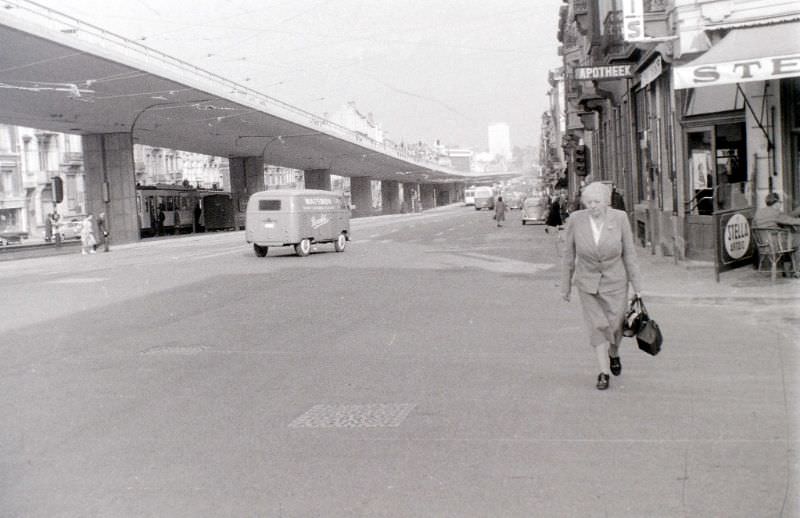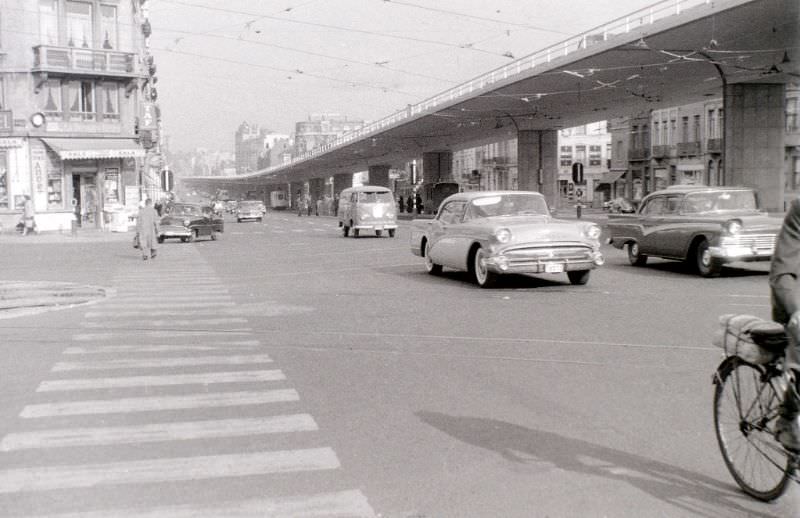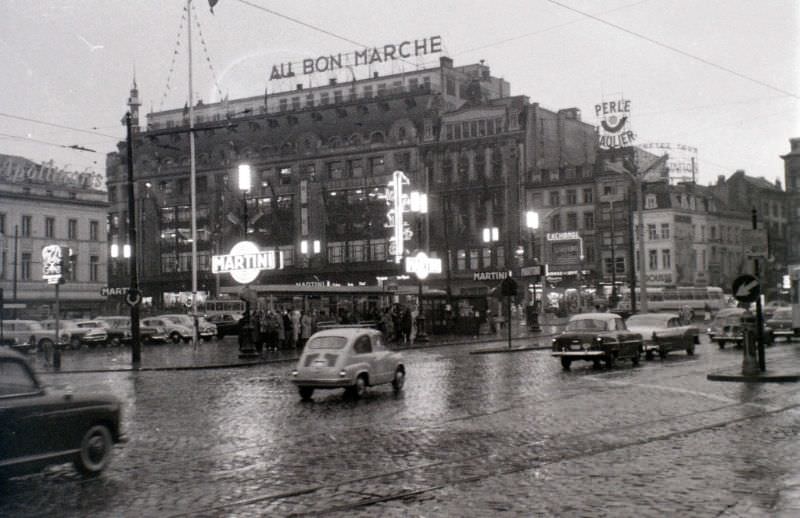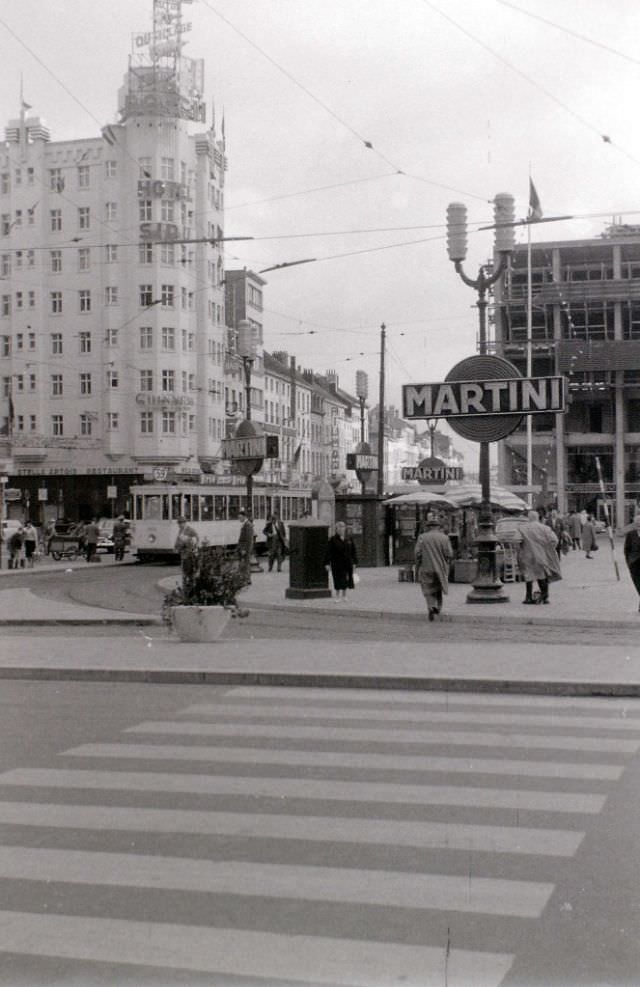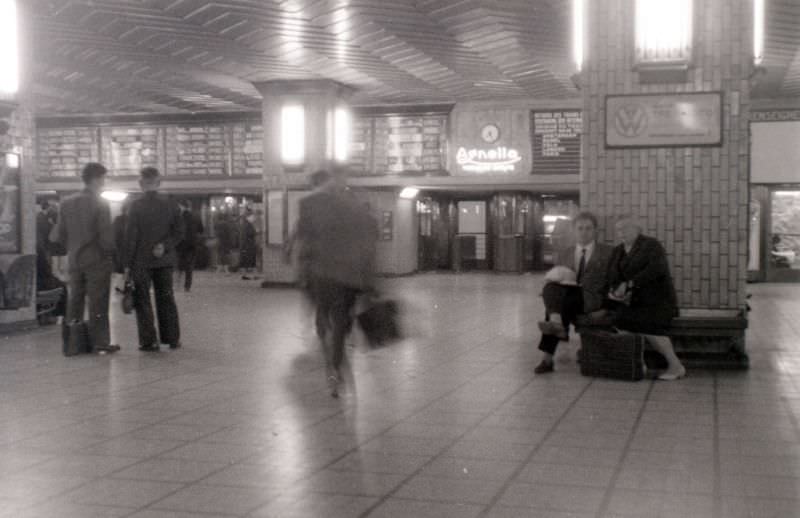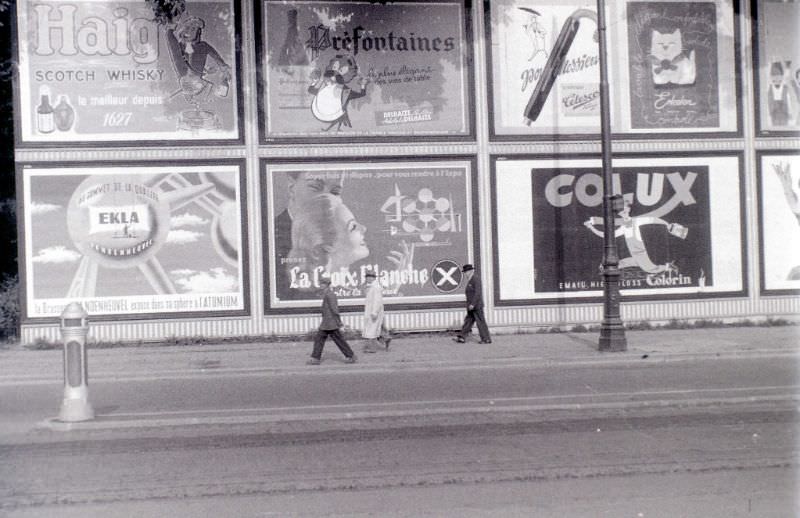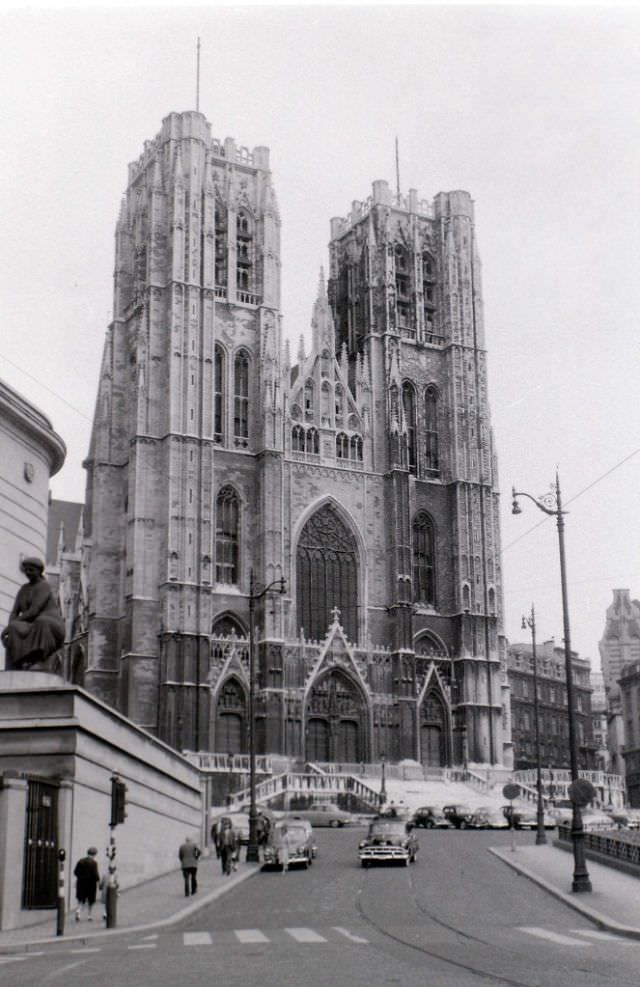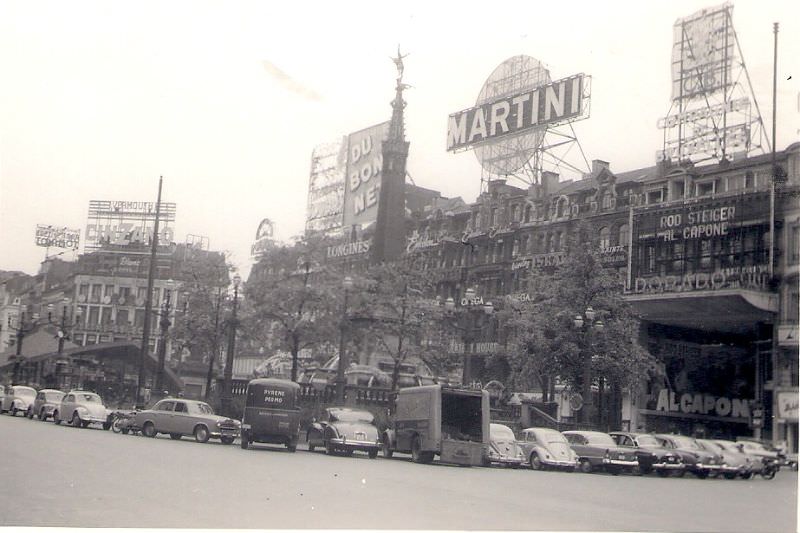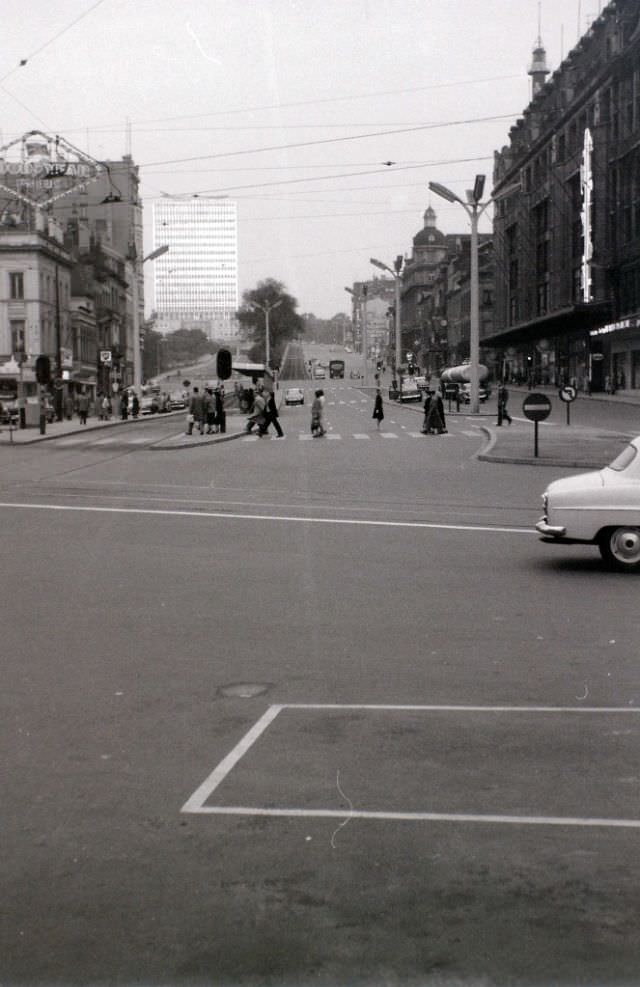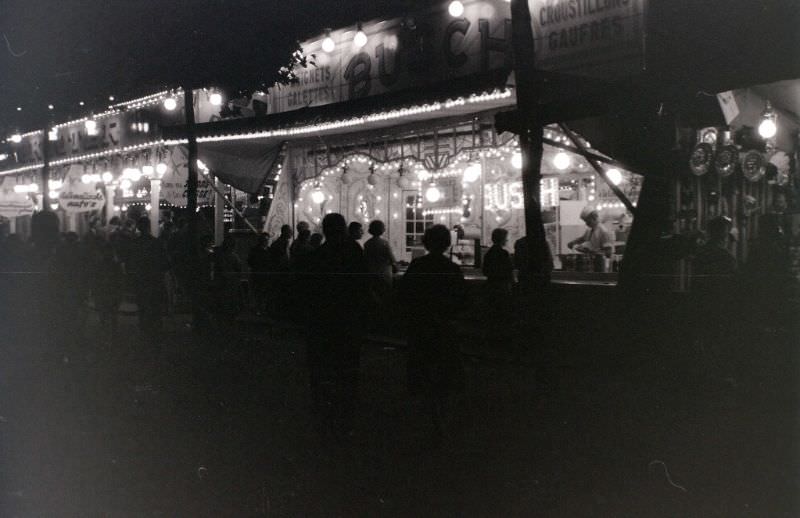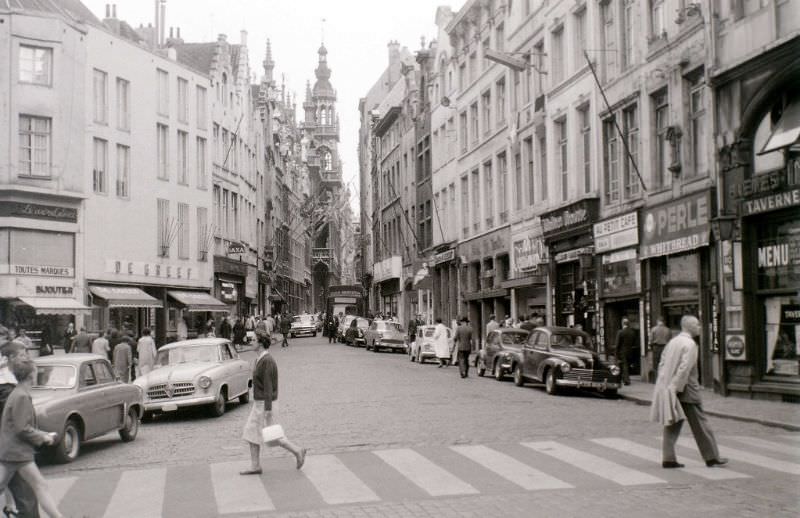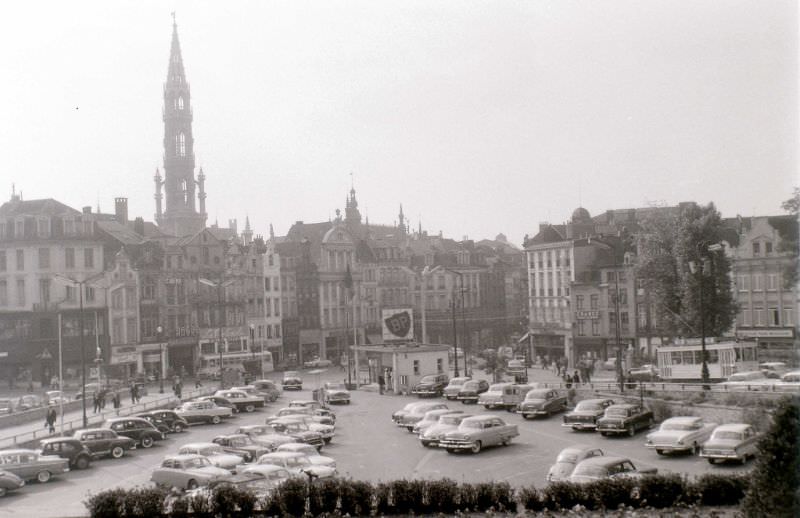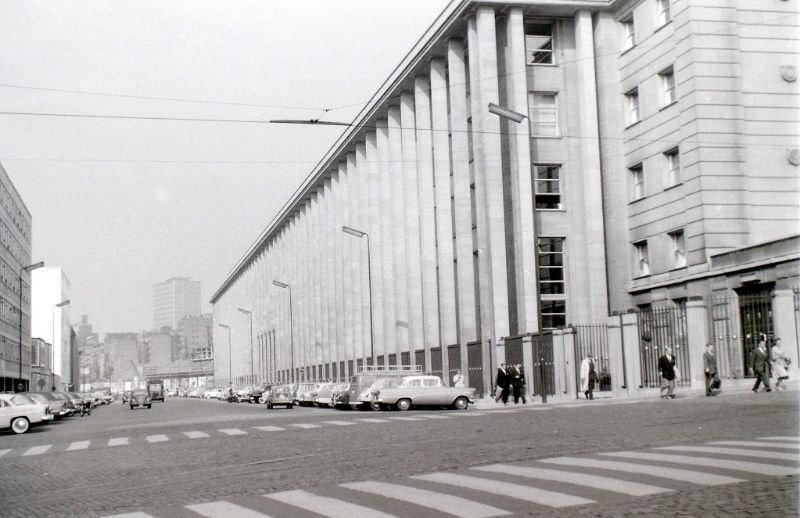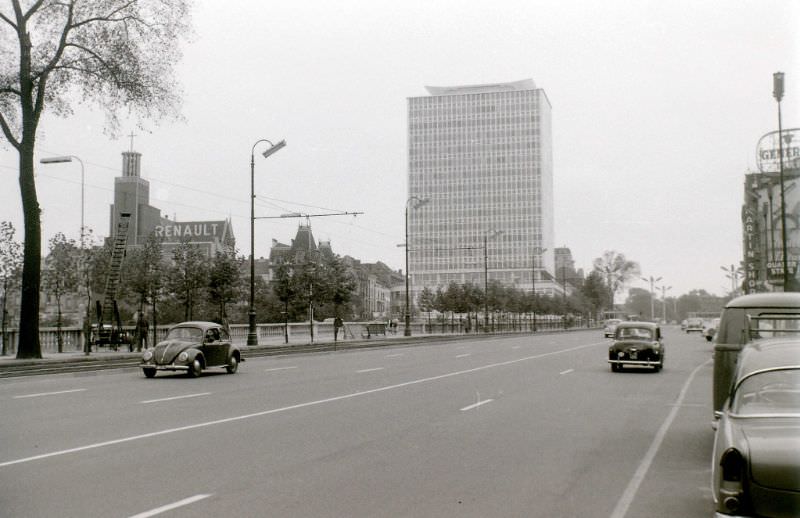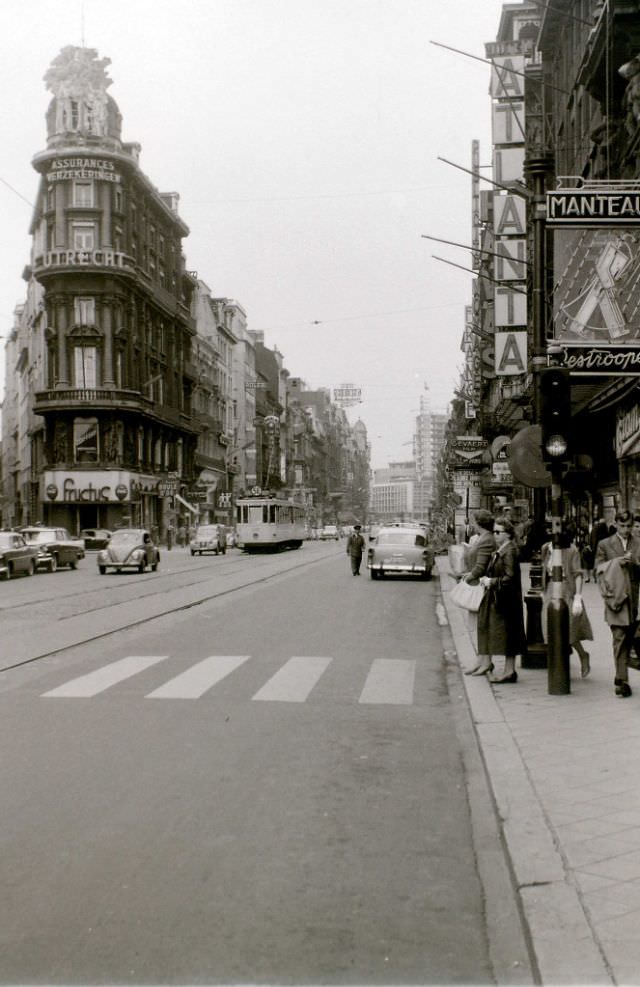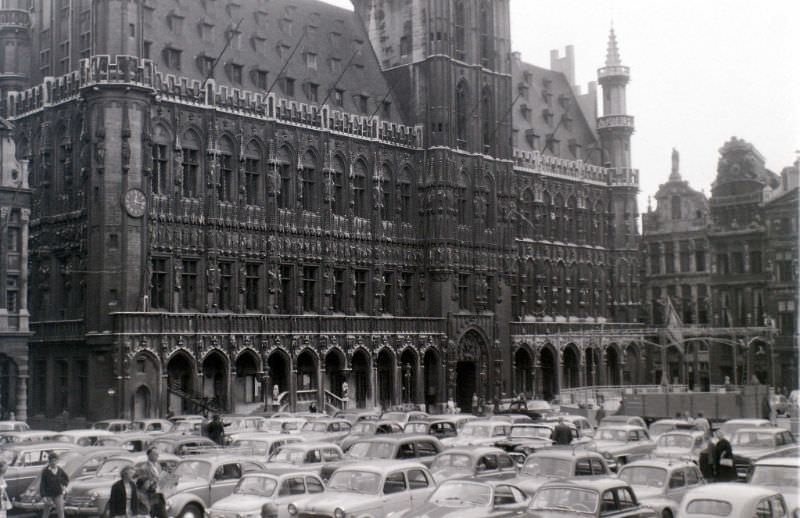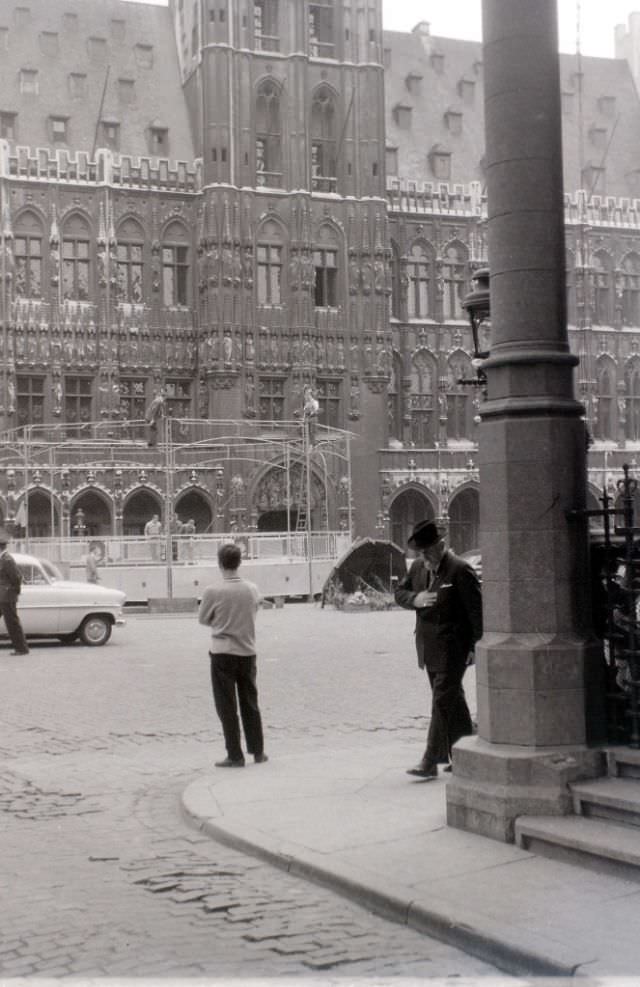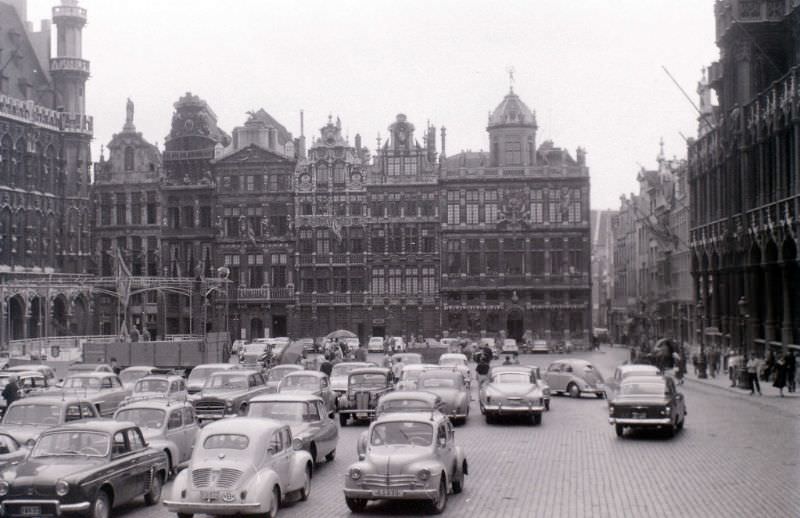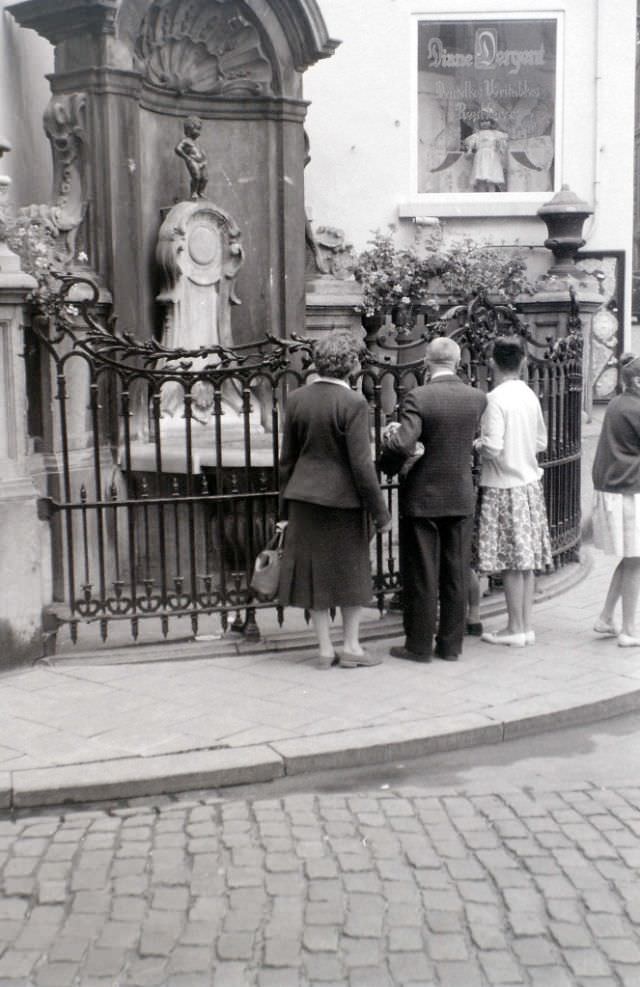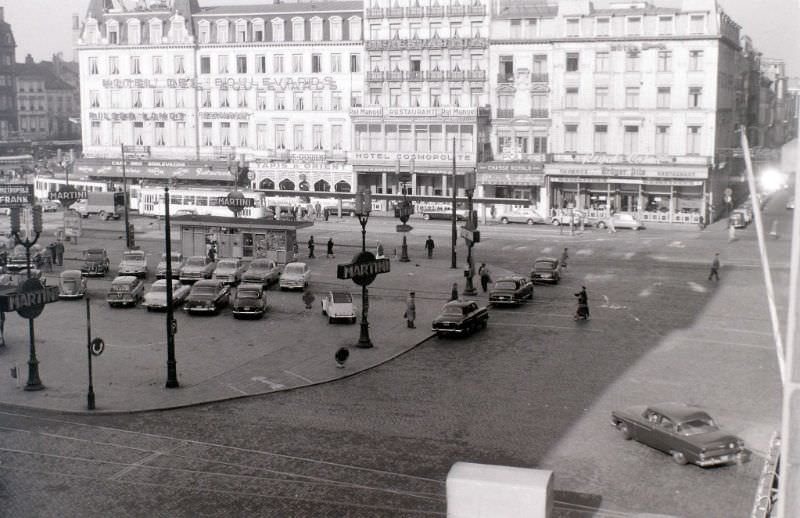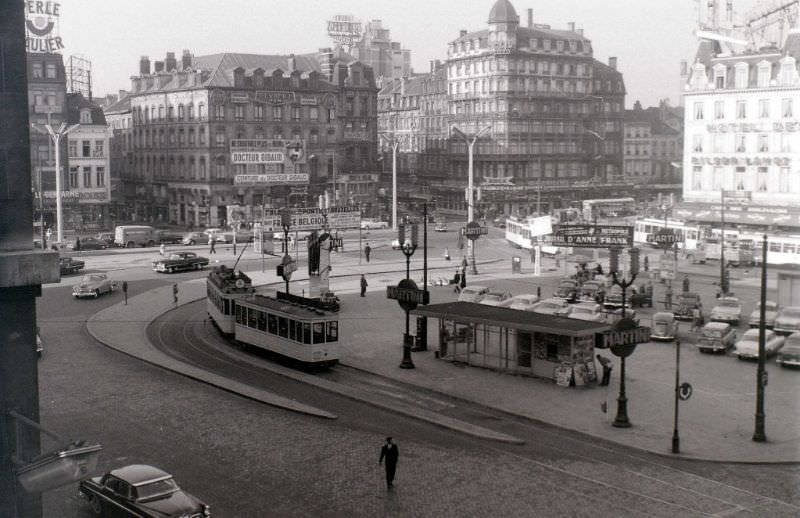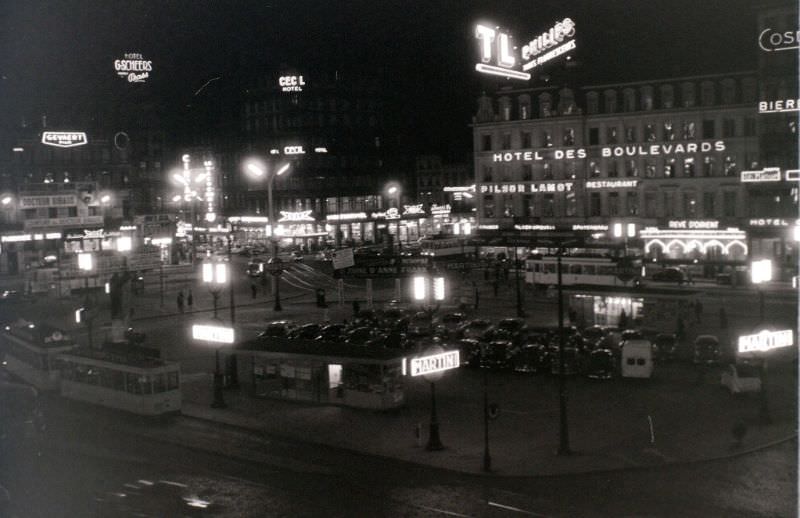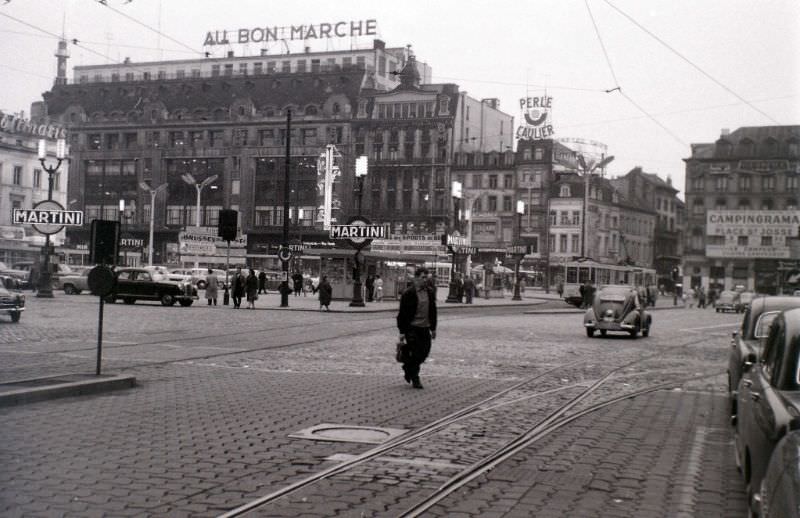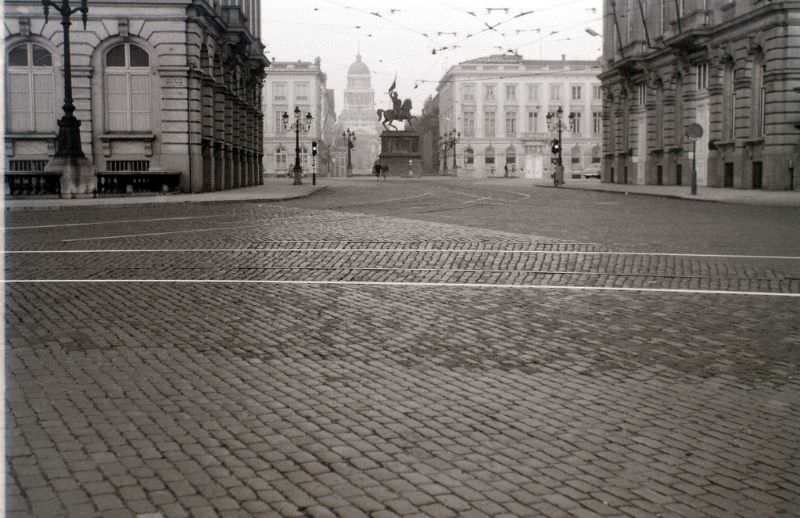The 1950s in Brussels, Belgium, was a period of significant change and growth. After World War II, the city underwent a process of modernization and expansion, driven in part by the development of the European Common Market. The city center was modernized, with new buildings and infrastructure, and the city’s population grew rapidly. The population of Brussels quickly grew in the 1950s as rural residents moved to the city in search of job opportunities and a higher standard of living. This led to urbanization, with new residential areas and housing developments springing up on the city’s outskirts. Despite the challenges of post-war recovery, the cultural scene in Brussels remained vibrant and thriving. There were numerous theaters, cinemas, and music venues, as well as museums and galleries showcasing the works of local and international artists.
During this time, Brussels became known for its high standard of living and its thriving cultural scene, with numerous museums, galleries, and theaters. The city was also home to several important international organizations, including the headquarters of the European Coal and Steel Community, which laid the foundation for the European Union.
The city’s architecture also underwent a transformation in the 1950s, with the construction of several important modernist buildings, including the Atomium and the Palace of the Nation. These structures symbolized Brussels’ modern and progressive spirit and helped to establish the city as a hub of innovation and creativity. The 1950s was a time of expansion for the city’s educational system, with the construction of several new schools and the establishment of new universities. This helped to increase access to education for young people in Brussels and contributed to the city’s reputation as a center of learning and intellectual activity.
The 1950s was a rich and vibrant period for culture in Brussels, with numerous theaters, galleries, and museums showcasing the work of local and international artists. The city was home to several important art movements, including Surrealism and Abstract Expressionism, and it was a hub of cultural activity and innovation. Despite its many successes, the 1950s was not without its challenges for the people of Brussels. The city was still recovering from the effects of World War II, and the Cold War tensions between the East and West created a sense of uncertainty and insecurity for many residents. The city was also grappling with issues of poverty, inequality, and immigration as it attempted to balance the needs of its growing population with the desire to maintain its high standard of living.
Here are some stunning vintage photos that will take you back to the 1950s in Brussels.


